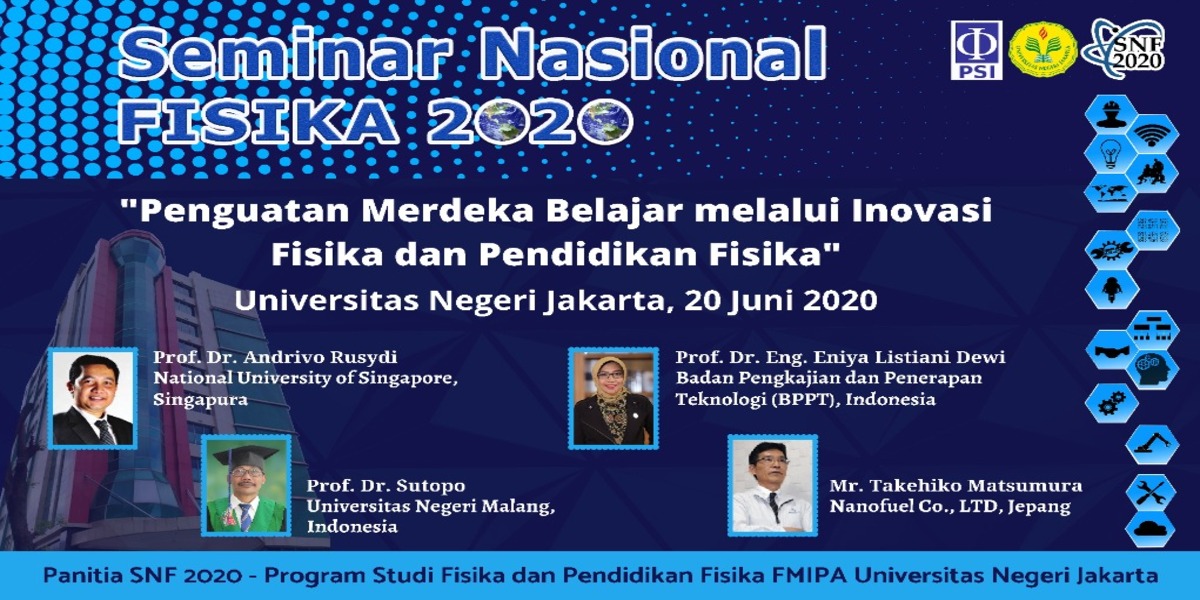National Physics Seminar 2020: Freedom to Learn during the Pandemic (Seminar Nasional Fisika 2020: Merdeka Belajar di Masa Pandemi)
Physics study and Physics Education program for the first time held the 9th National Physics Seminar (Seminar Nasional Fisika) on 20 June 2020 online using the Zoom application. This is done considering that the spread of the Covid-19 virus is still ongoing in Jakarta and its surroundings. National Physics Seminar (Seminar Nasional Fisika) itself has become a forum for regular annual scientific meetings which are the result of collaboration with the Jakarta and Banten branches of the Physical Society of Indonesia (PSI). One of the important goals of holding this National Physics Seminar (Seminar Nasional Fisika) is to expand community networks and collaboration between participants in the field of physics and its applications. This year, the number of seminar participants was 253 participants from various universities.
This year’s National Physics Seminar (Seminar Nasional Fisika) had the theme “Strengthening Freedom of Learning through Physics Innovation and Physics Education” and was opened by Universitas Negeri Jakarta Deputy Chancellor 1 Prof. Suyono, M.Si. The seminar then continued by presenting several remarks, namely from the chairman of SNF-2020, Dr. Hadi Nasbey, M.Si, Dean of FMIPA Universitas Negeri Jakarta Dr. Adisyahputra, and Chairman of the Jakarta and Banten branches of PSI Dr. Ariadne L. Juwono, M.Eng. To lighten the atmosphere, the National Physics Seminar (Seminar Nasional Fisika) committee also showed some light entertainment, either in the form of dances or songs sung by Universitas Negeri Jakarta physics students.
The first-panel session was hosted by Prof. Andrivo Rusydi from the physics department, National University of Singapore, moderated by Dr.rer.nat. Bambang Heru Iswanto from Physics Departement Universitas Negeri Jakarta. In his presentation, Prof. Andrivo told how he built a laboratory from scratch, collaborated with other researchers, and got brilliant ideas from the research he was doing. His current areas of interest are spin, charge, and lattice degrees of freedom, strongly correlated electron systems, and the design of complex material surface systems.
Prof. Andrivo is one of the best scientists in Indonesia for his work. This man who was born in Padang, West Sumatra was recorded as having been a visiting professor at the Center for Free Electron Laser and the Institute for Applied Physics of the University of Hamburg, Germany, then at the Physics Department of the University of Illinois, Urbana, Illinois, United States, and at the University of British Columbia, Canada.
In looking for inspiration for the research being carried out, Prof. Andrivo quoted several verses from the Al Quran, one of which is Surah Al Imran 14. In this verse, it is stated that gold and silver are jewelry that humans like. Based on this, he took gold as a material for his study. The result was several international papers with his collaborators regarding the application of materials composed of gold. Gold itself is a good conducting metal, but it is non-magnetic so there is a possibility that it can be used as a topological insulator which is very useful for spintronic devices.
The second-panel session was hosted by Prof. Sutopo and moderated by Dr. Anggara Budi Susila from the Physics Department at Universitas Negeri Jakarta. Prof. Sutopo is the first professor appointed by the State University of Malang (UM) in the field of physics education. At this seminar, he conveyed his ideas regarding the concept of independent learning in physics which can be applied in the classroom.
The ideas conveyed by Prof. Sutopo stated that mastering physics requires an adequate understanding of the basic concepts of each mathematical formula presented. This is usually not done by students so students have difficulty when facing the same physics problems but in different cases. Therefore, independent learning is implemented by providing an understanding of physics concepts to students through existing media or facilities.
The third-panel session was given by Prof. Dr. Eng. Eniya Listiani Dewi who is Deputy for the Agency for the Study and Application of Technology (BPPT) in the fields of information technology, energy, and materials. This session was moderated by Prof. Dr. Agus Setyo Budi, from the Physics Department Universitas Negeri Jakarta and chairman of LLDIKTI 3 Jakarta Region. This graduate from Waseda, Japan, is the only woman to receive the Habibie Award in the field of technological engineering.
In this session he presented material about research-based innovation, basic research mechanisms, production, and commercialization. Prof. Eniya provides ideas on how to build an ecosystem for electric motorized vehicles and charging stations. One of the goals is to reduce air pollution which continues to increase along with the increase in the number of motorized vehicles. One interesting issue is national car production (Mobnas), whose productivity tends to fall. Apart from that, he also explained the E-KTP production flow from the start of production until distribution to the general public.
The final panel session was given by Mr. Takehiko Matsumura as director and CEO of Nanofuel Co., LTD, Japan. This session is still moderated by Prof. Dr. Agus Setyo Budi. Mr Takehiko is a graduate of the Faculty of Agriculture, at Iwate University, Japan
In this session, Mr. Takehiko explained the application of nanotechnology as fuel (Nanofuel). The concept of nanofuel is to determine a material that is suitable as a potential energy carrier and releases heat when oxidation occurs. One of the materials used is a metal additive which can produce large amounts of energy with maximum efficiency. Currently, this technology is a hot topic in Japan considering the maximum efficiency it can produce.
The panel session ended at around 12.00 p.m. and will be continued with parallel sessions for each participant starting at 01.00 p.m. This session was divided into 16 parallel sessions moderated by a physics lecturer assisted by a student as an operator. In this session, each participant presented the results of their research online via Zoom media within 5 minutes. Then, a question and answer session was held for 2 minutes. Apart from that, the moderator also gives grades and announces the best presenter in each room. This parallel session ends at around 03.00 p.m.
The papers presented will be published in one of the following publications
- AIP Conference Proceedings (Scopus indexed)
- Journal of Physics Education Research and Development (SINTA 2)
- Spectra Universitas Negeri Jakarta (Sinta 3)
- SNF National Proceedings (Google Scholar indexed)
In addition, this is the second year that SNF articles will be published in reputable international proceedings (Scopus indexed) by the American Institute of Physics (AIP)
Documentation can be seen on the website: https://snf2020.snf-unj.ac.id/
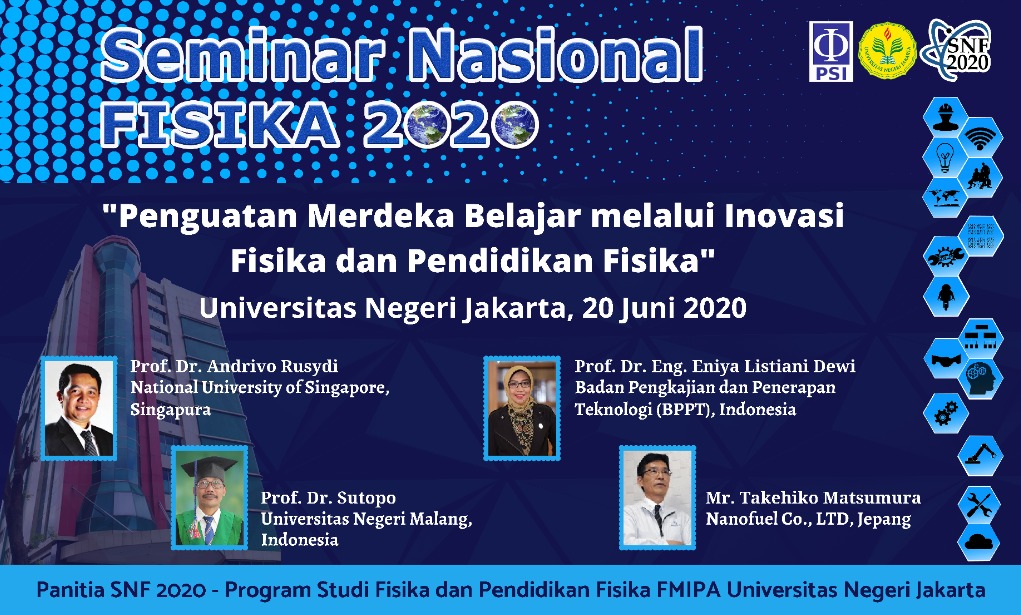
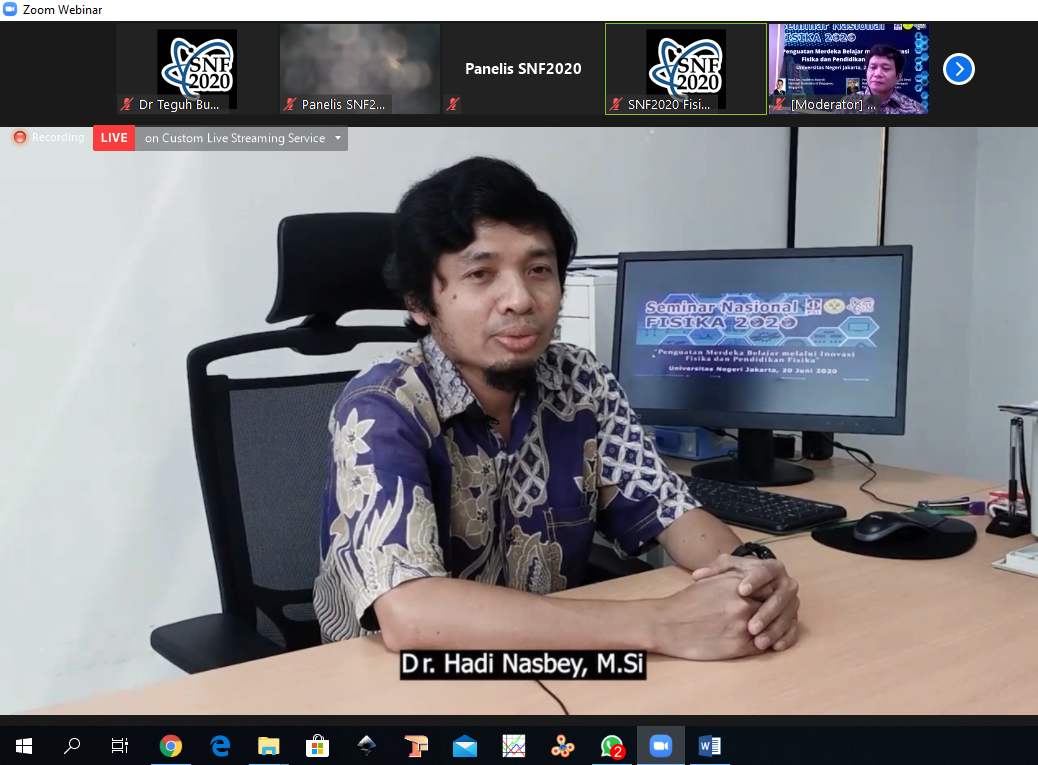
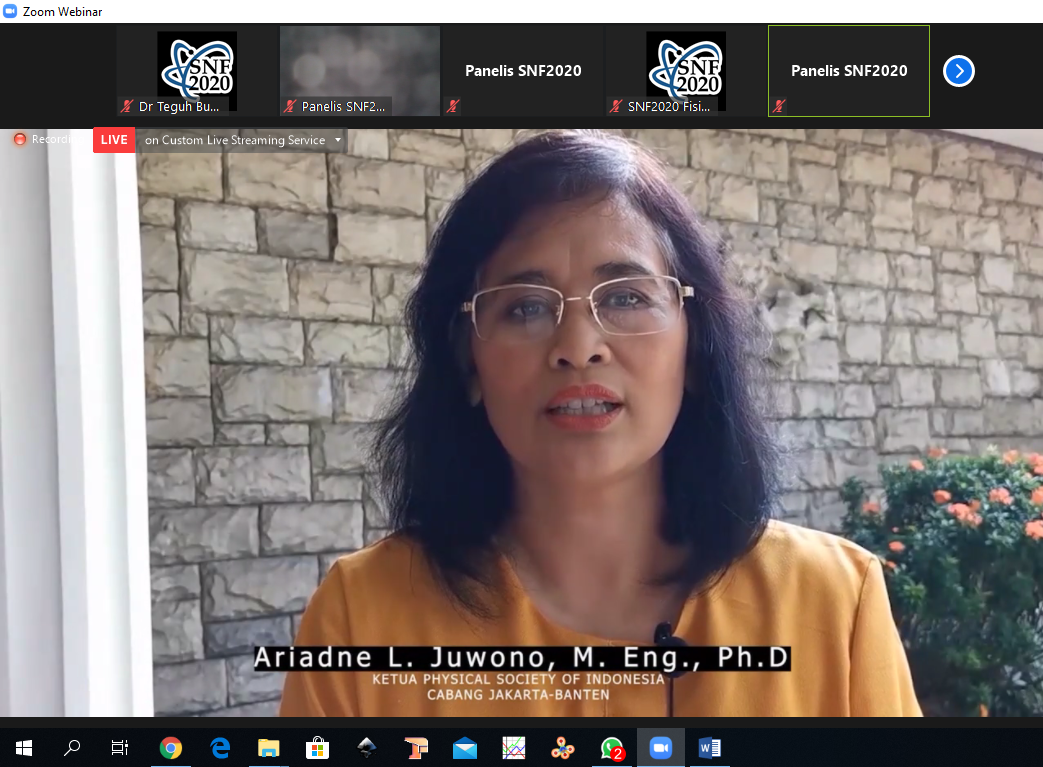
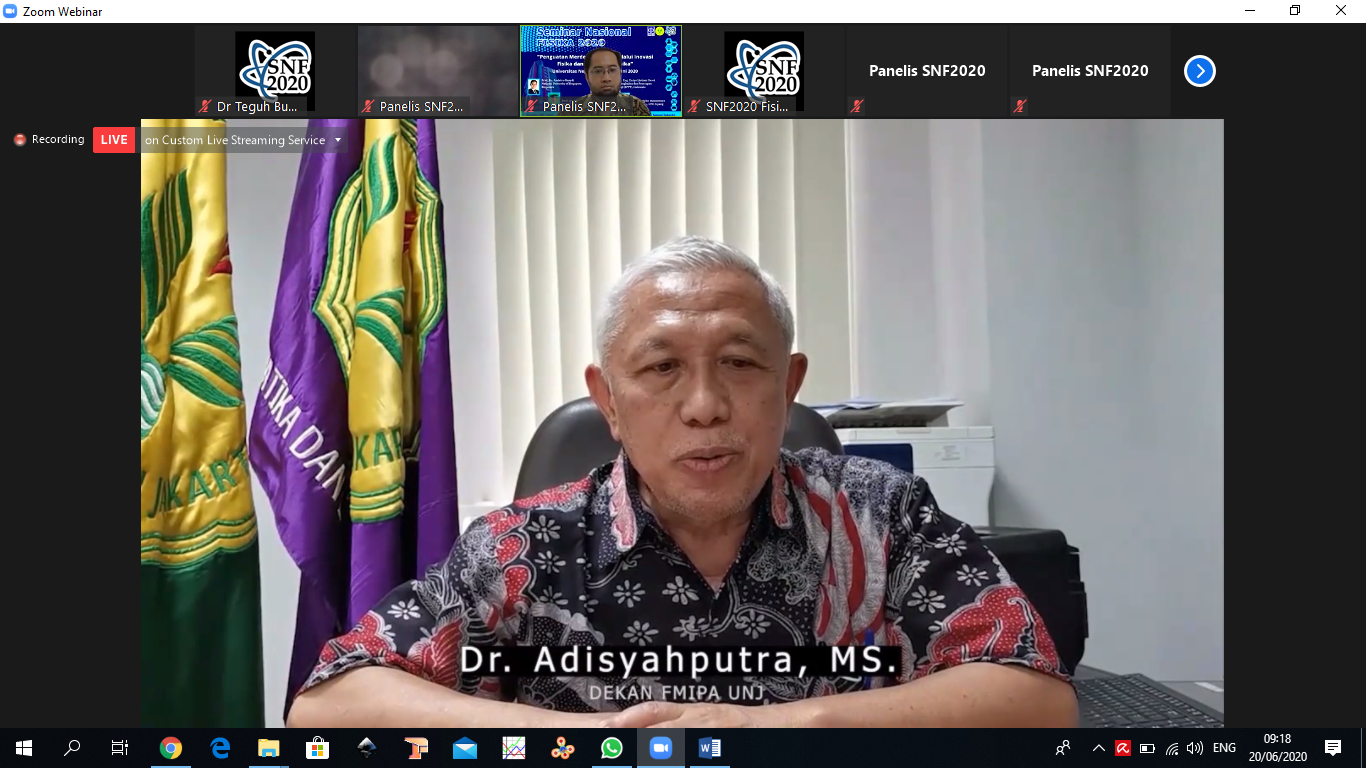
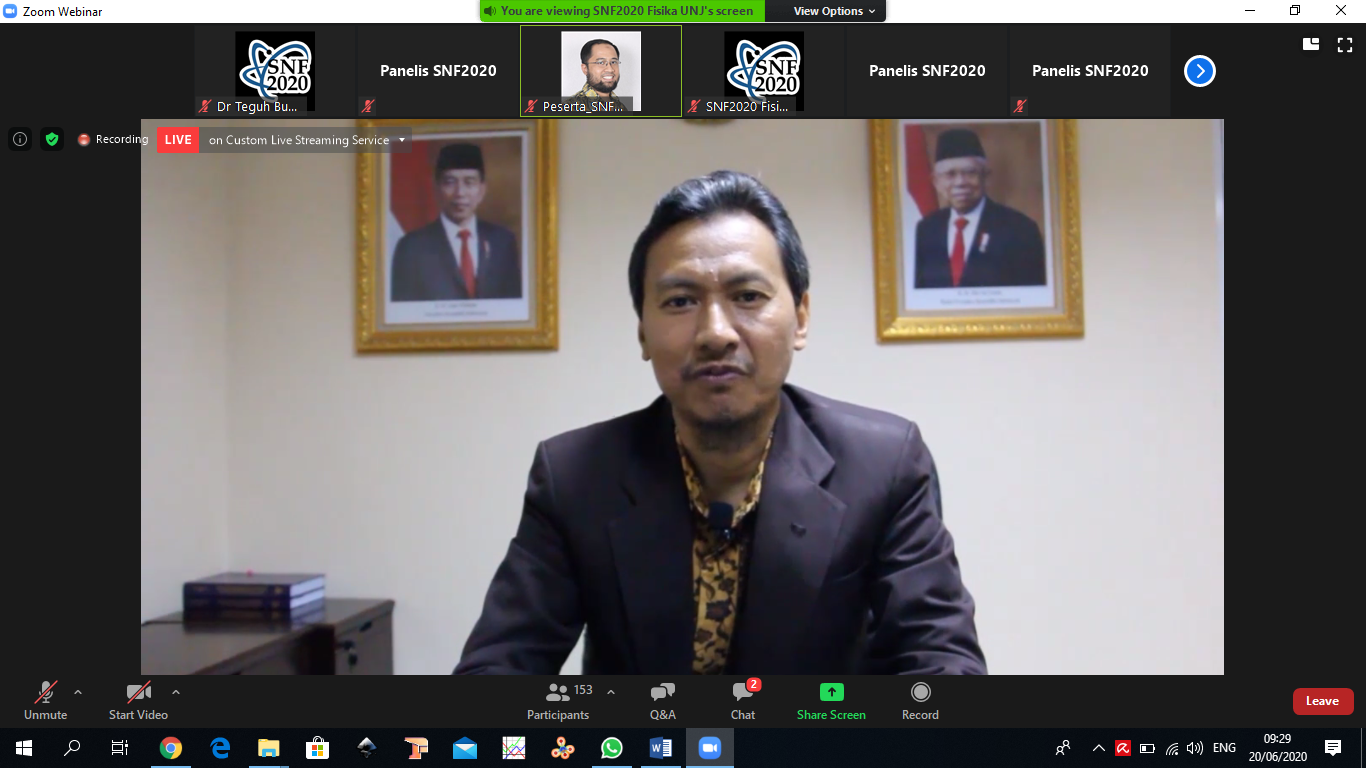
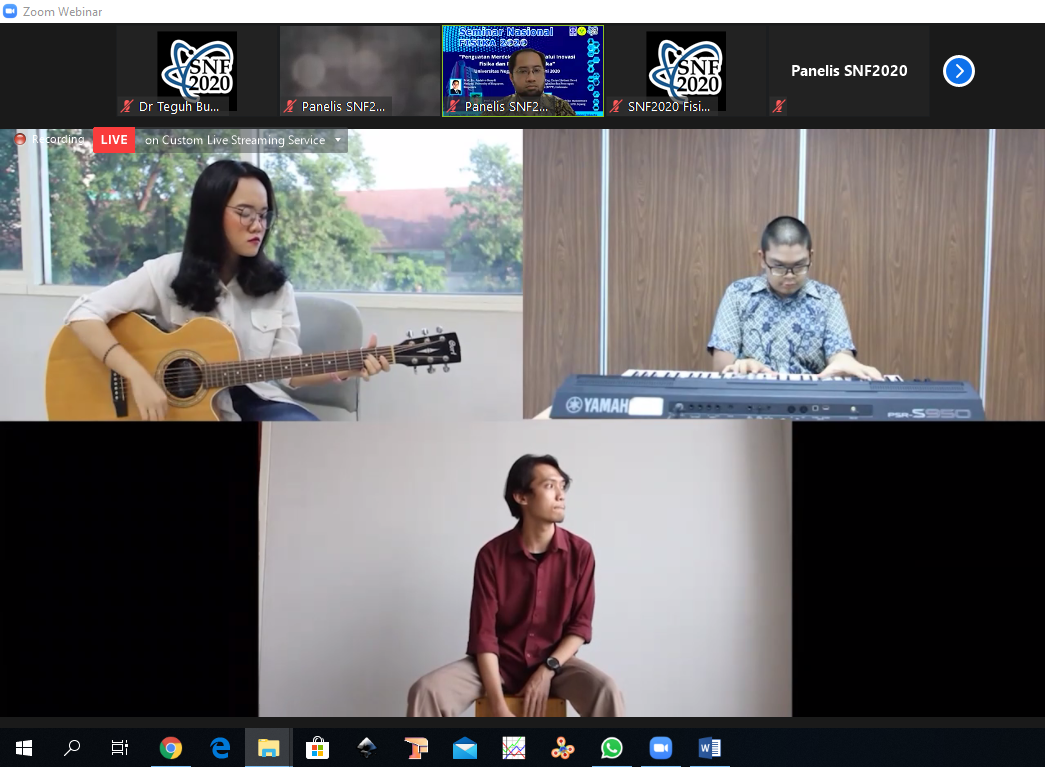
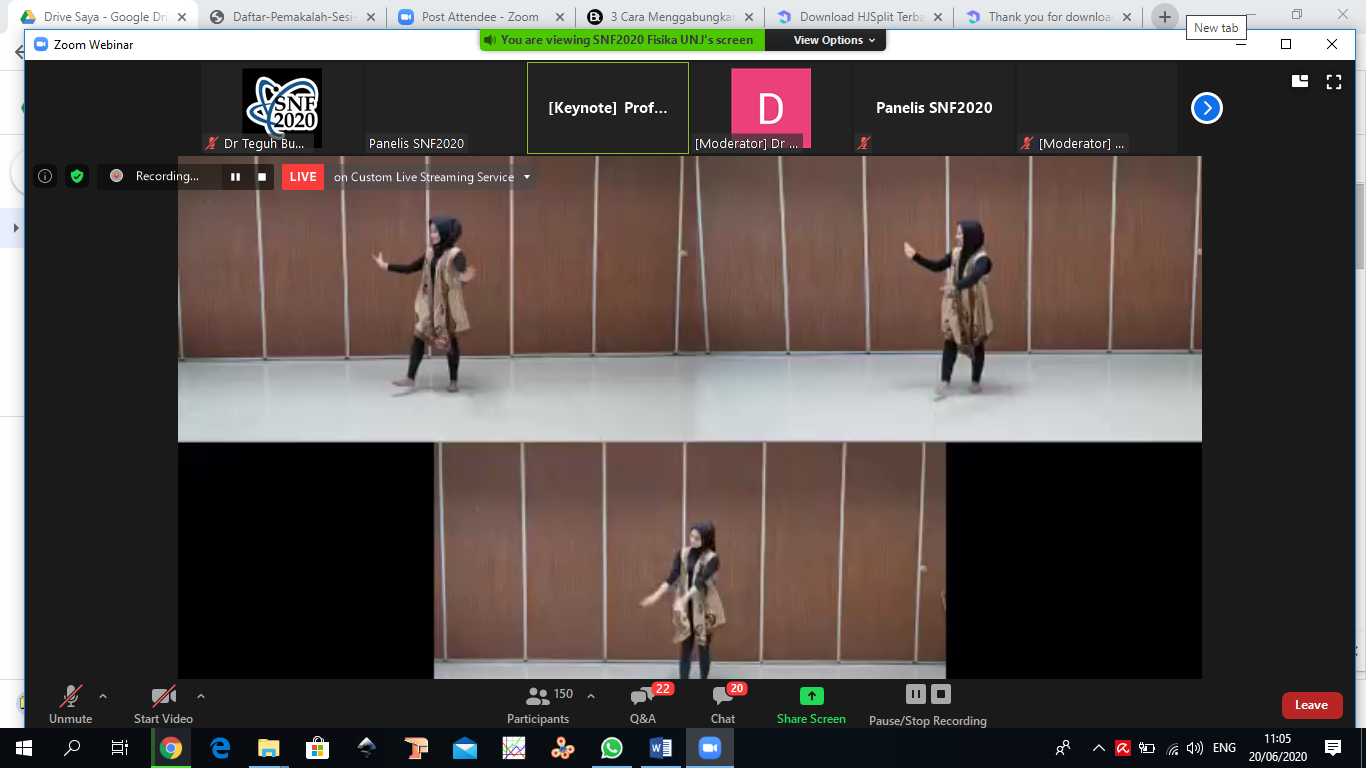
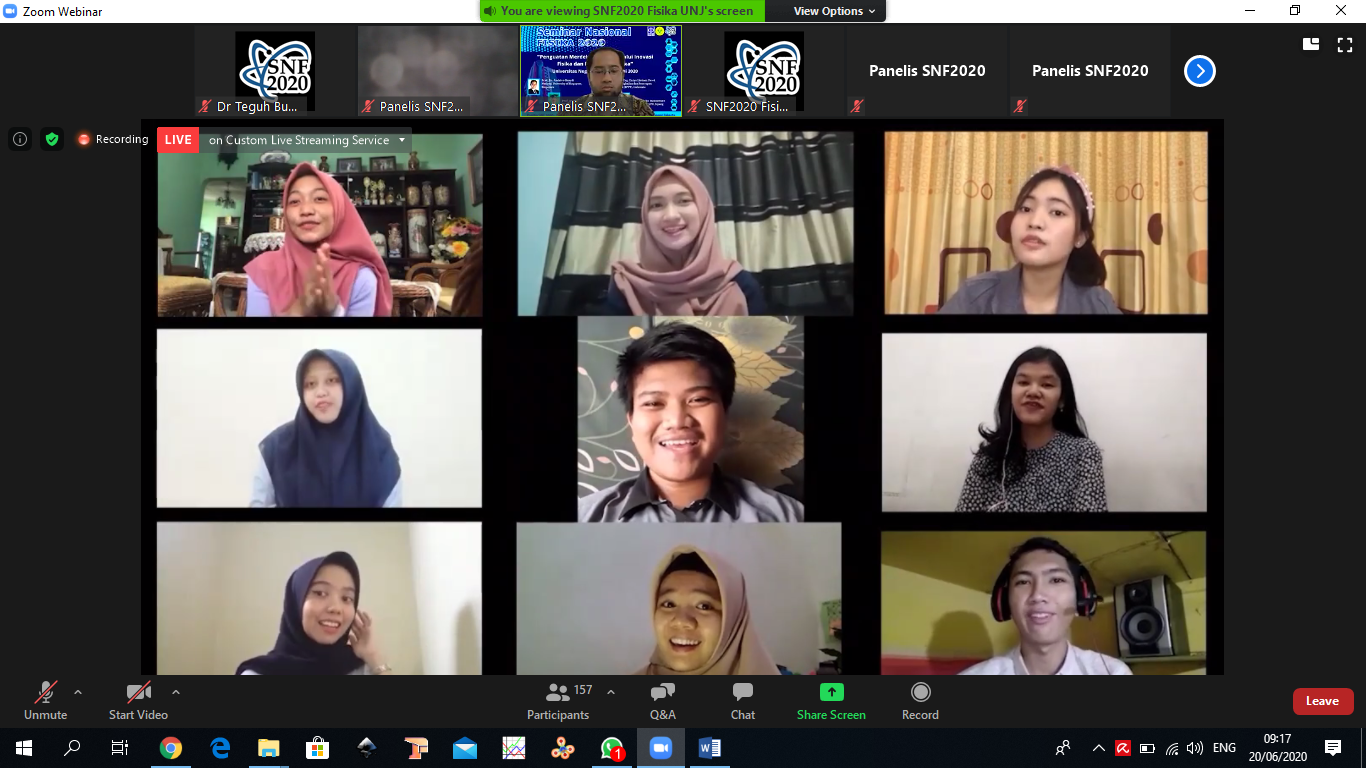
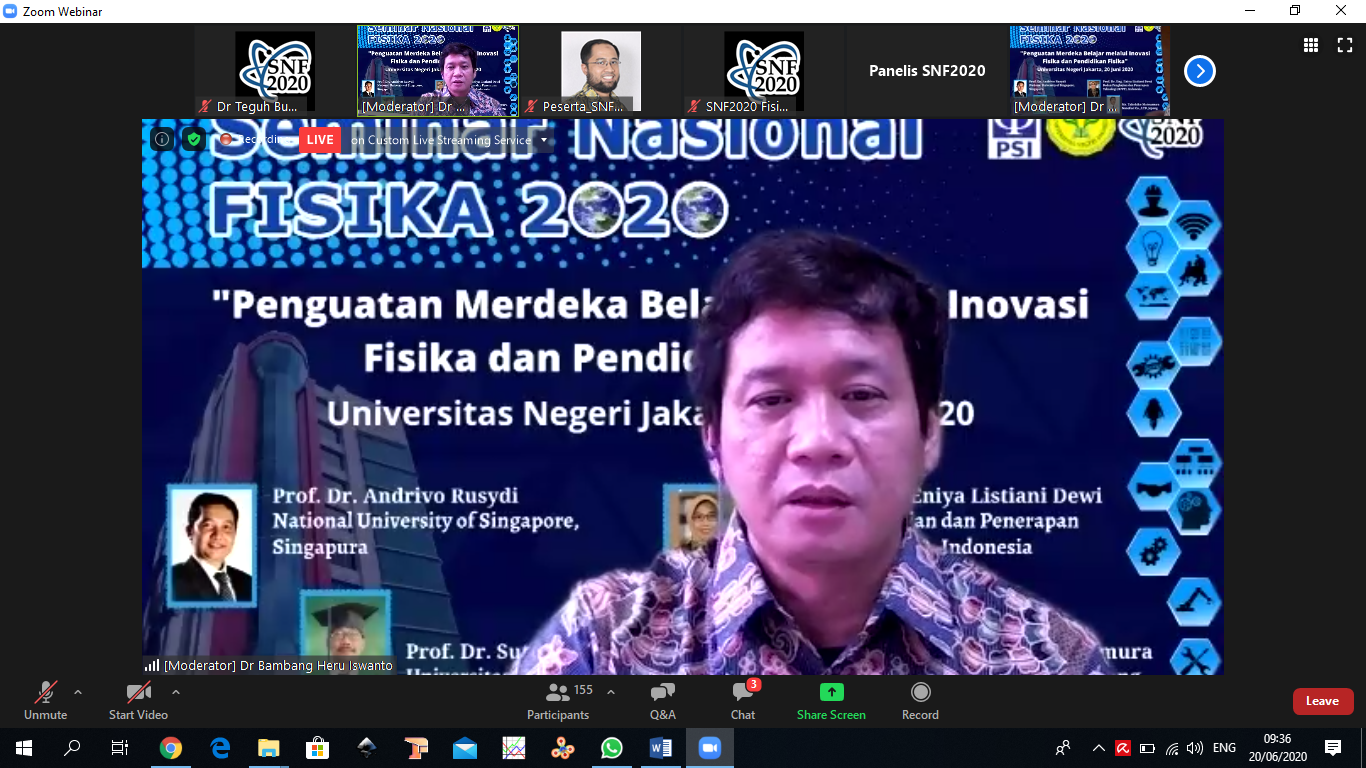
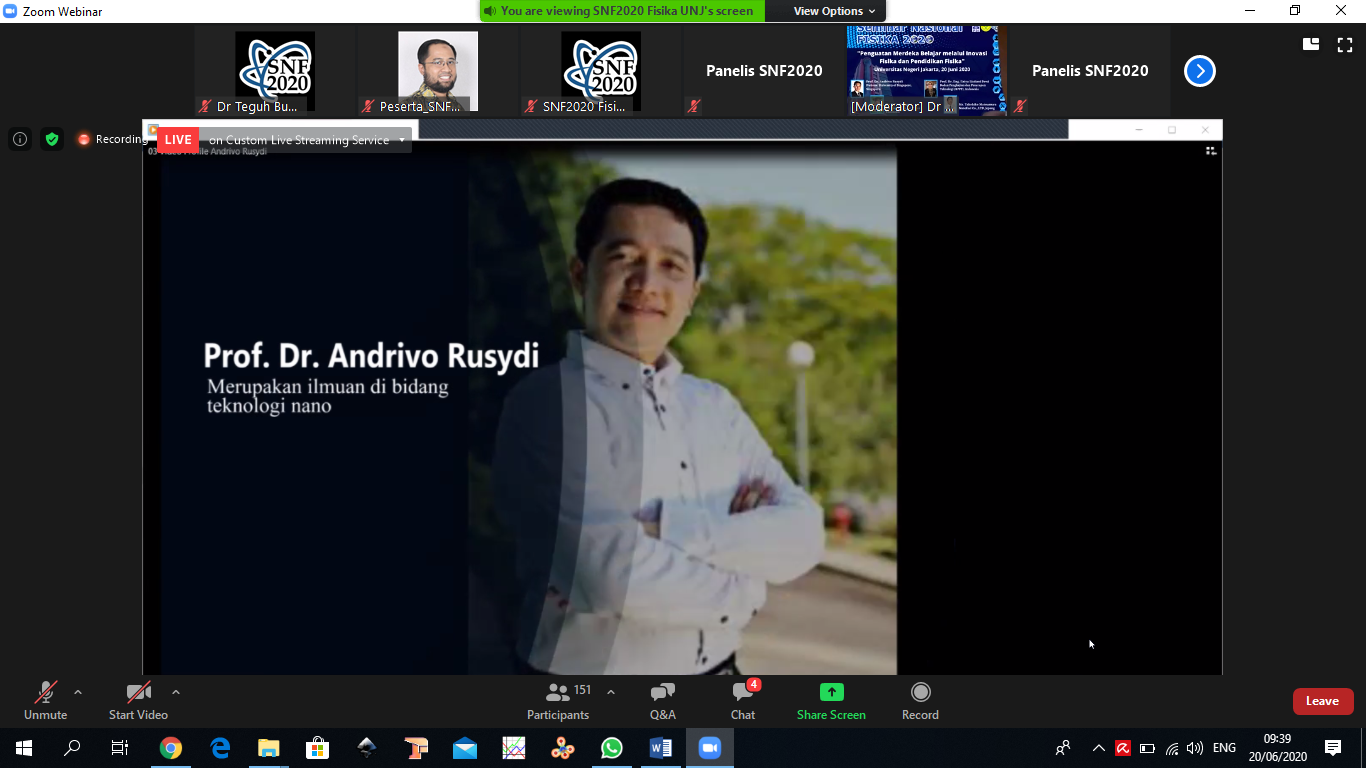
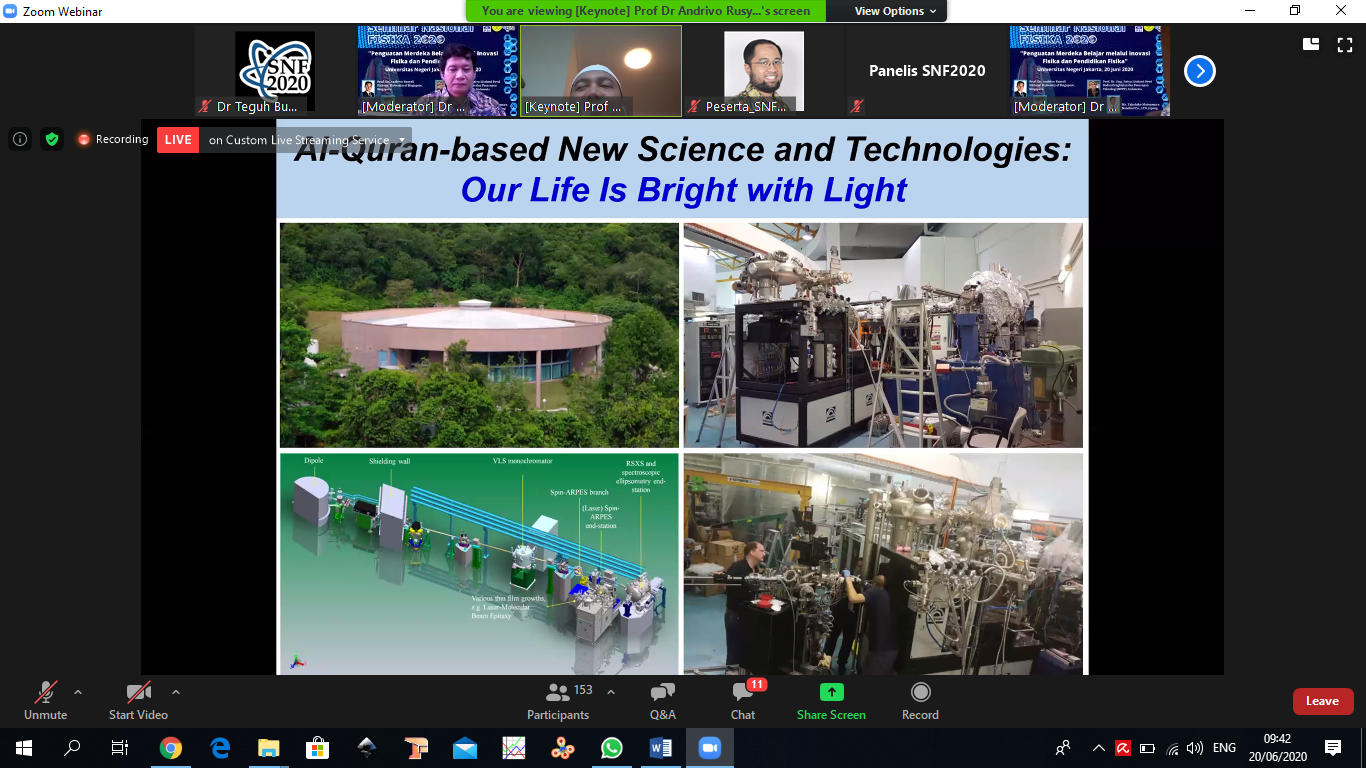
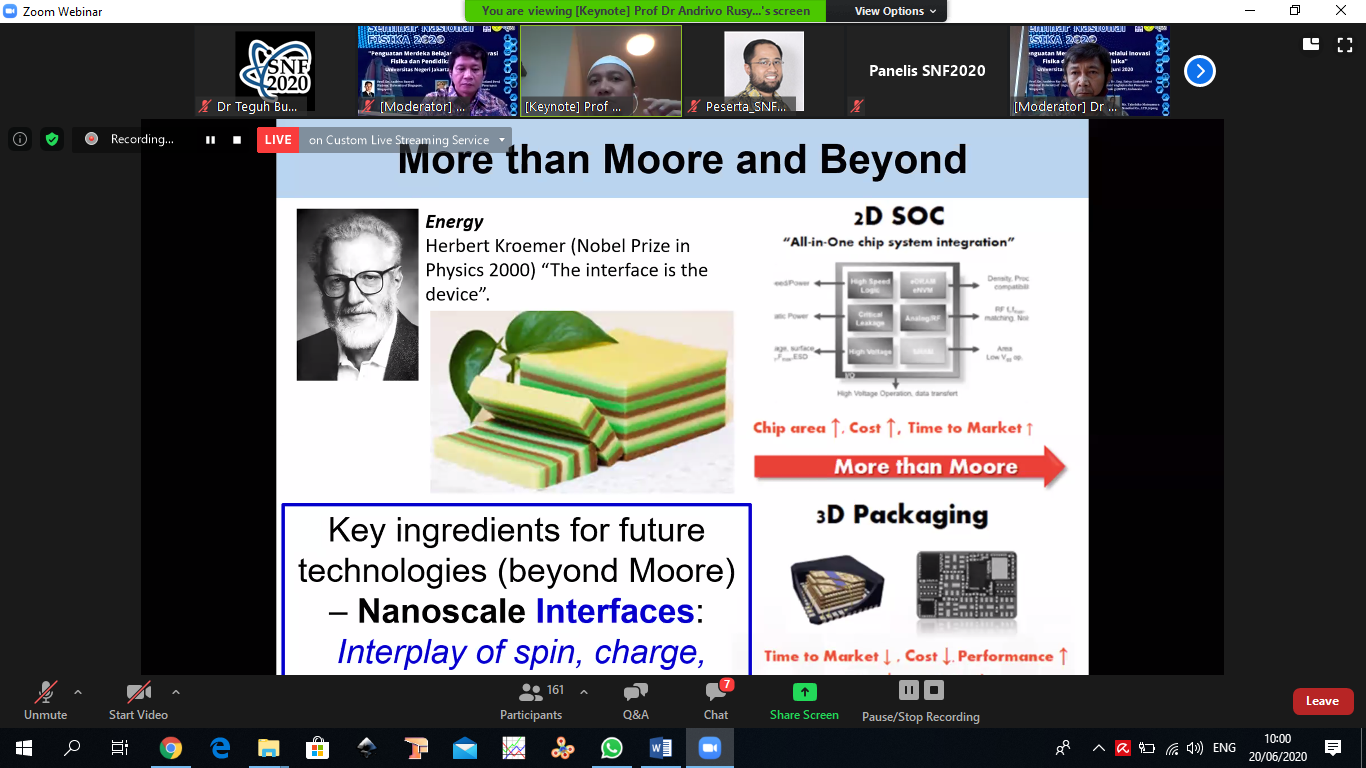
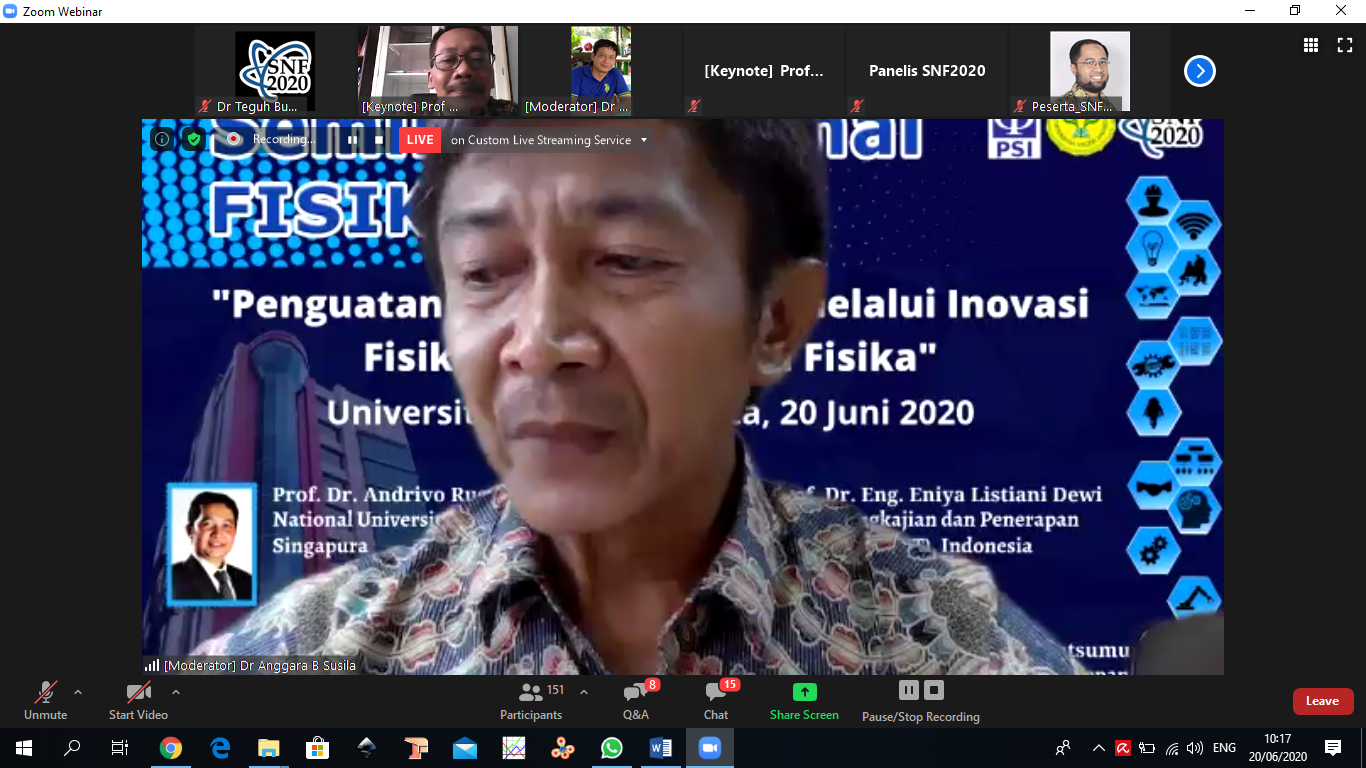
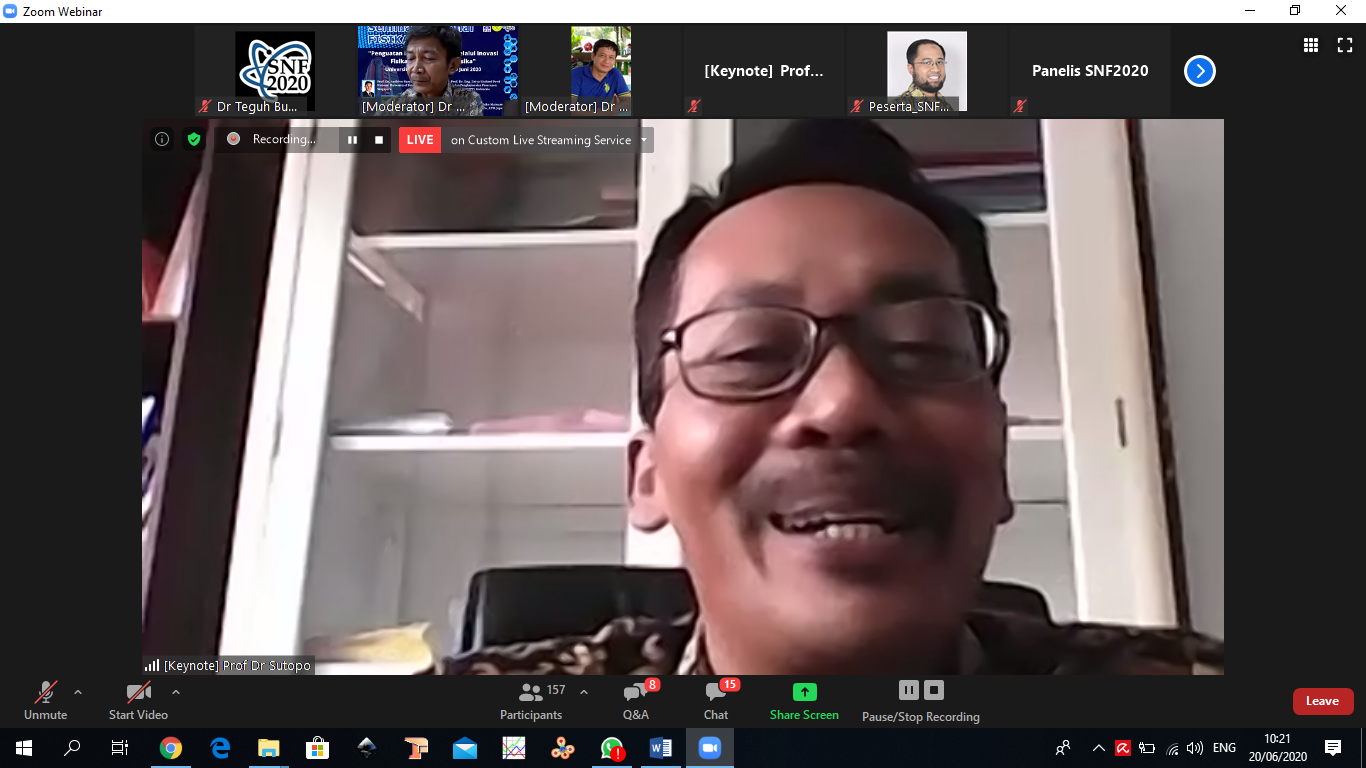
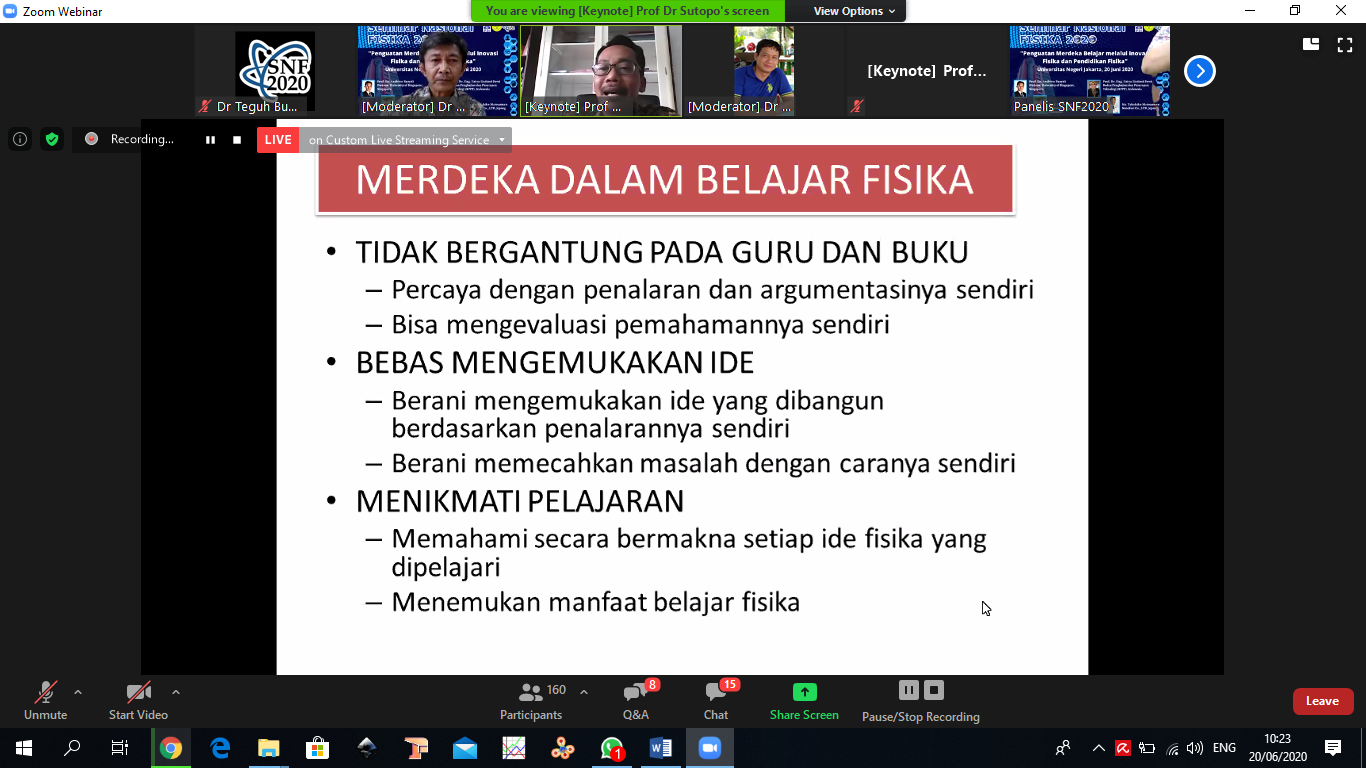
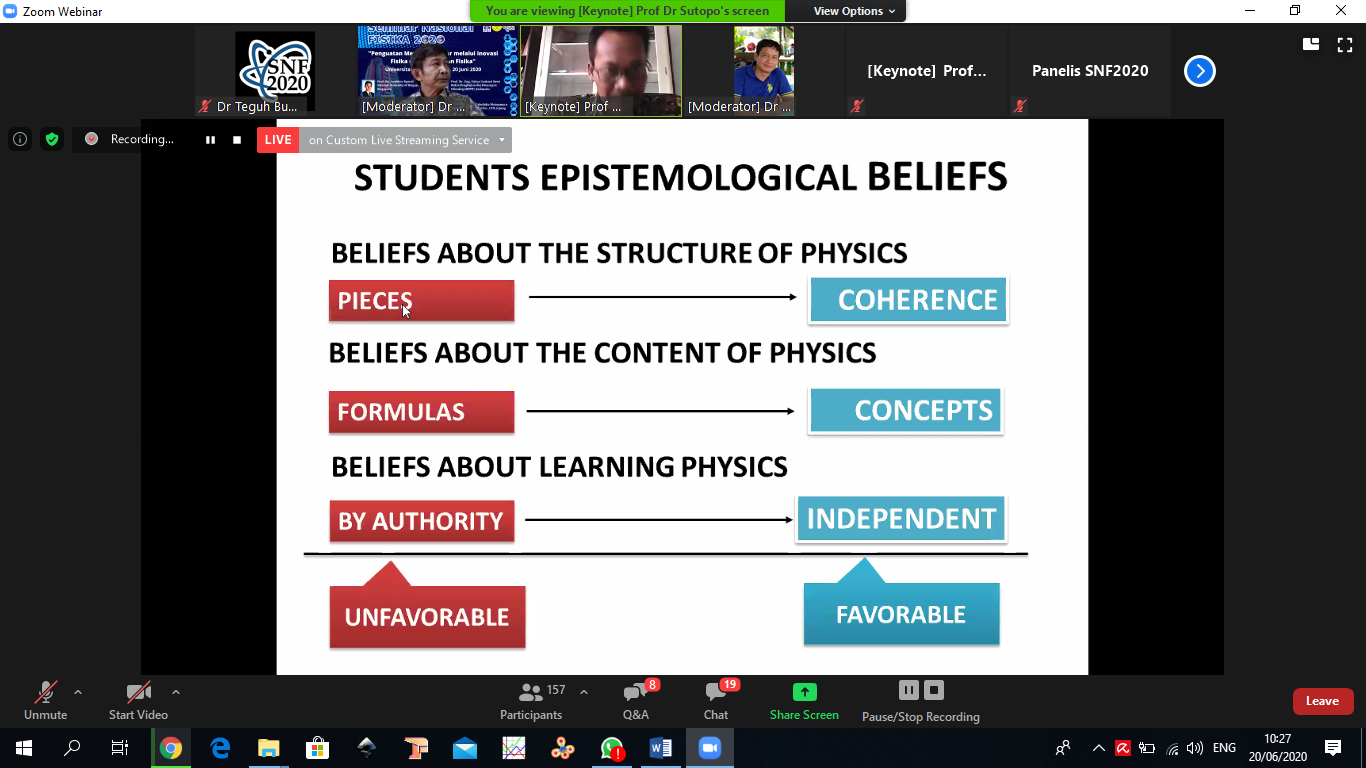
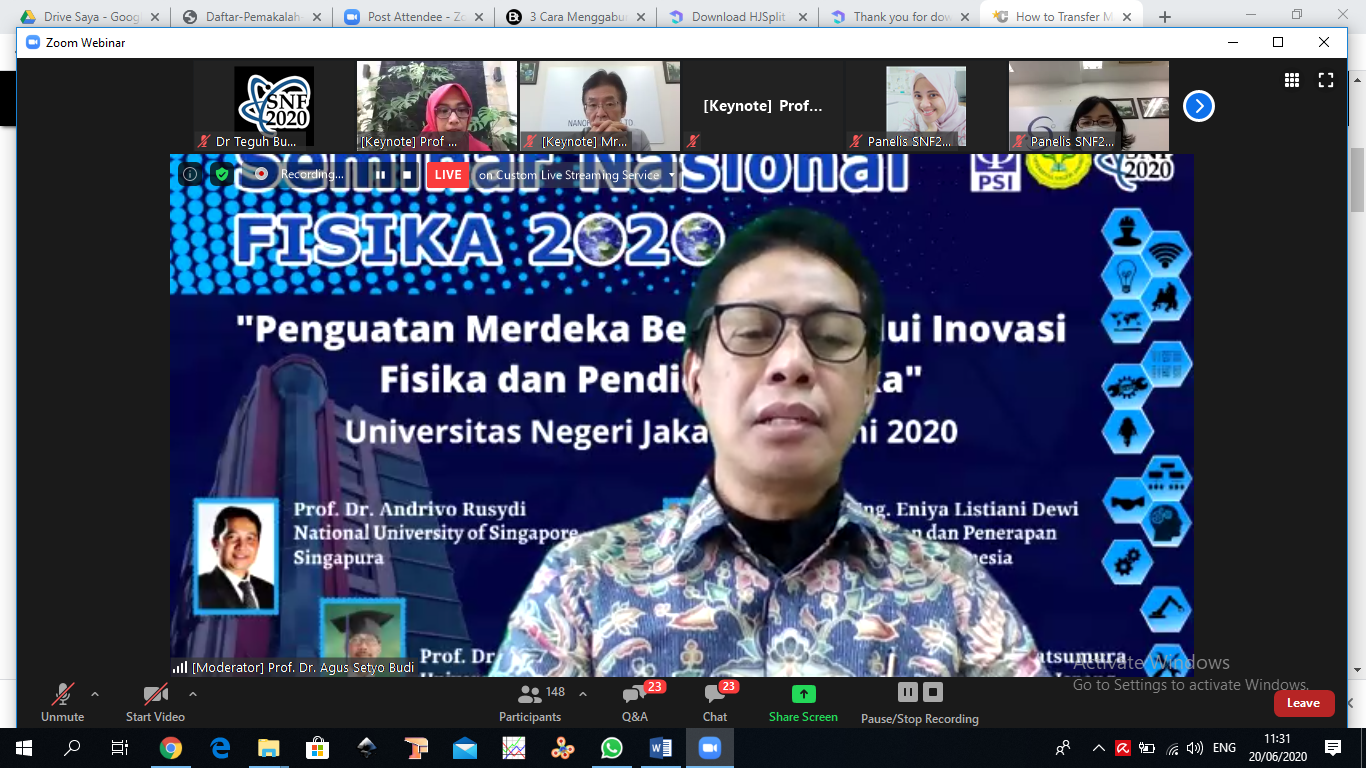
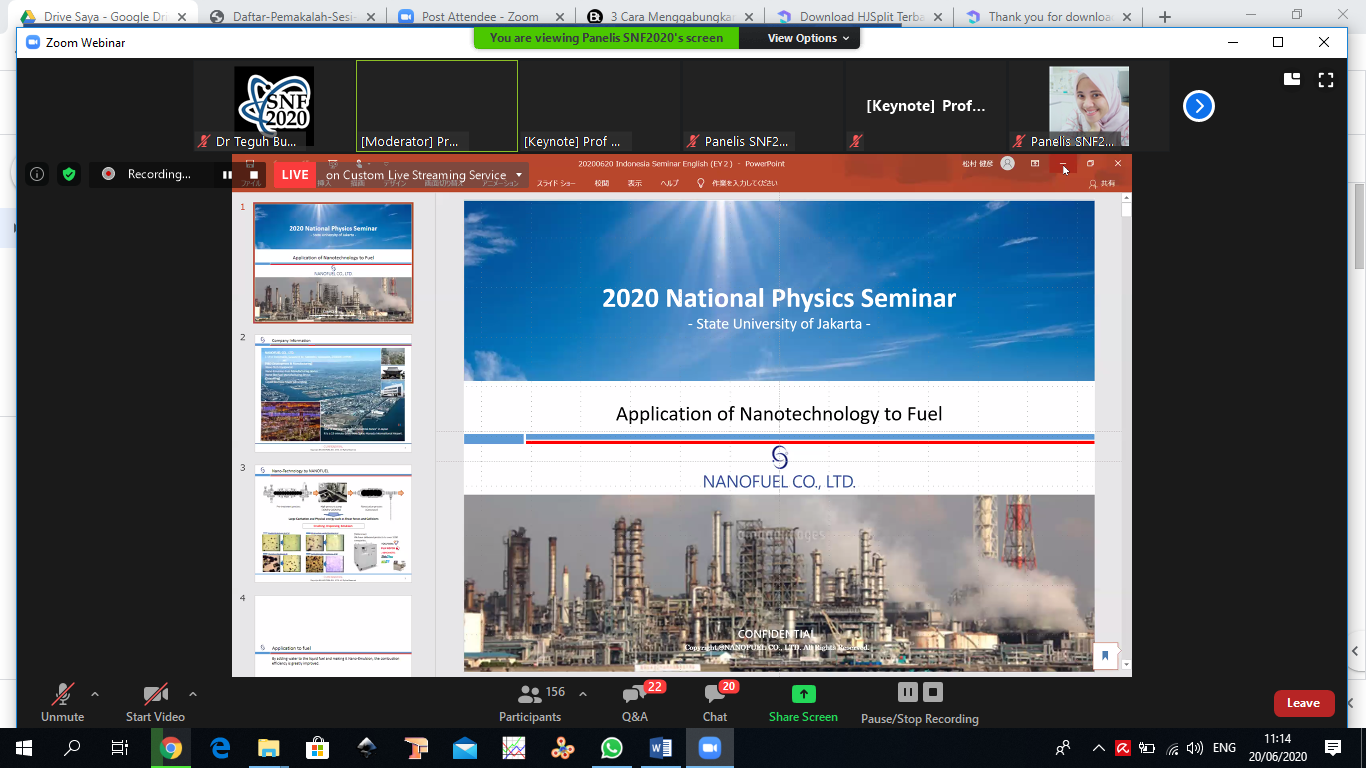
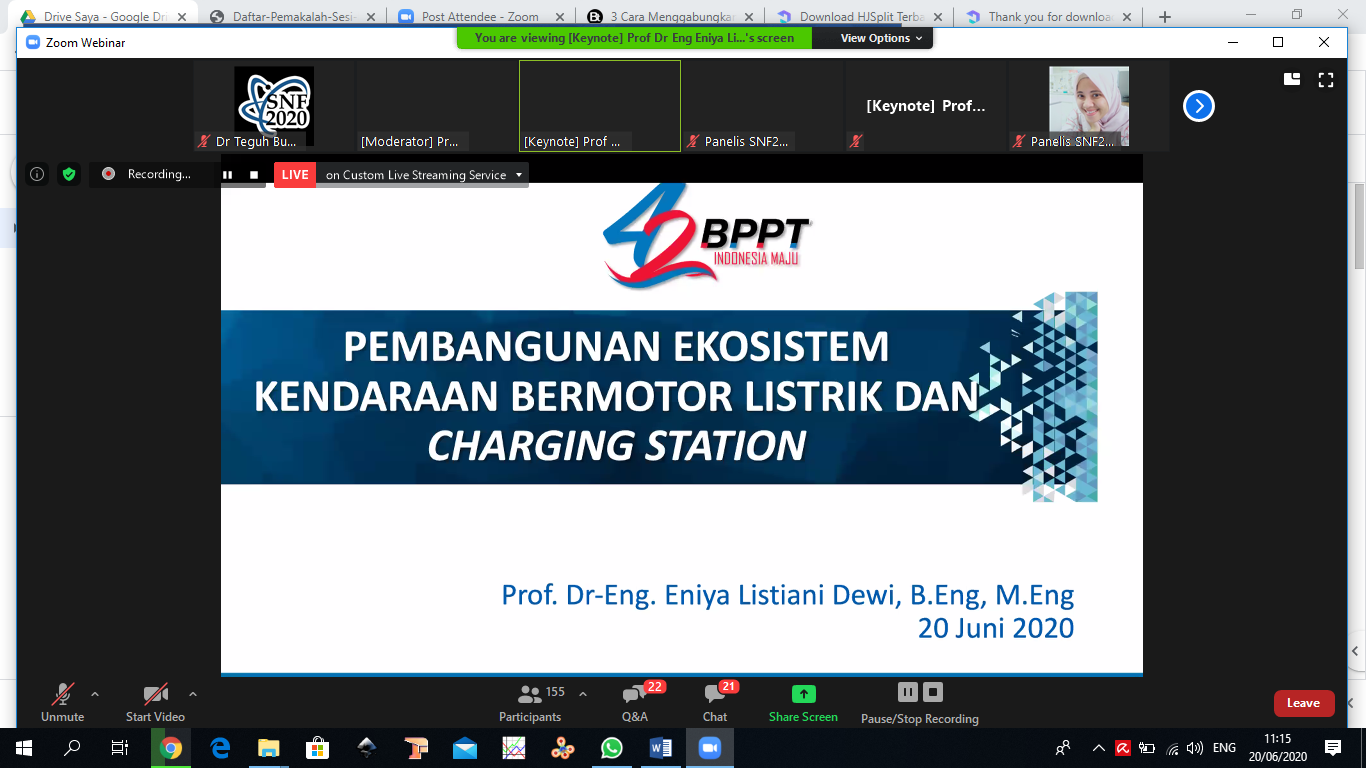
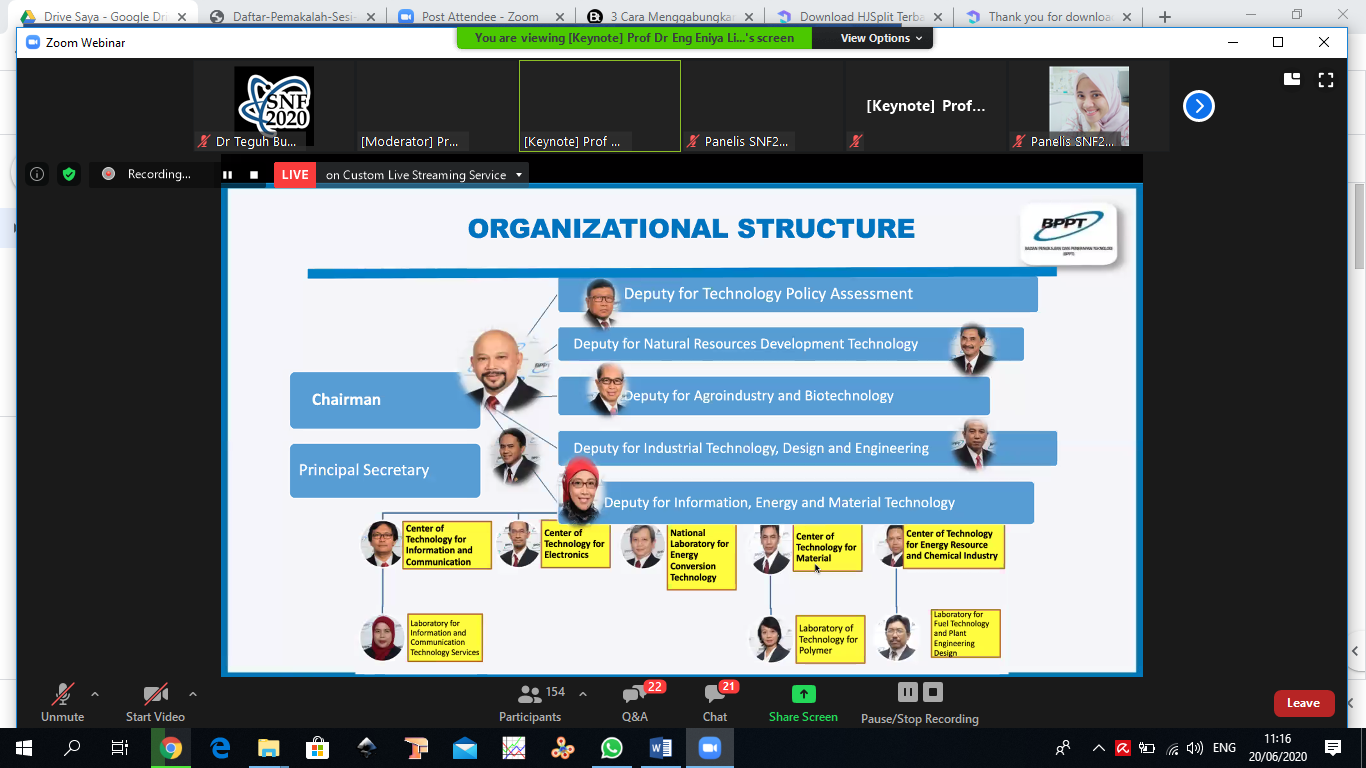
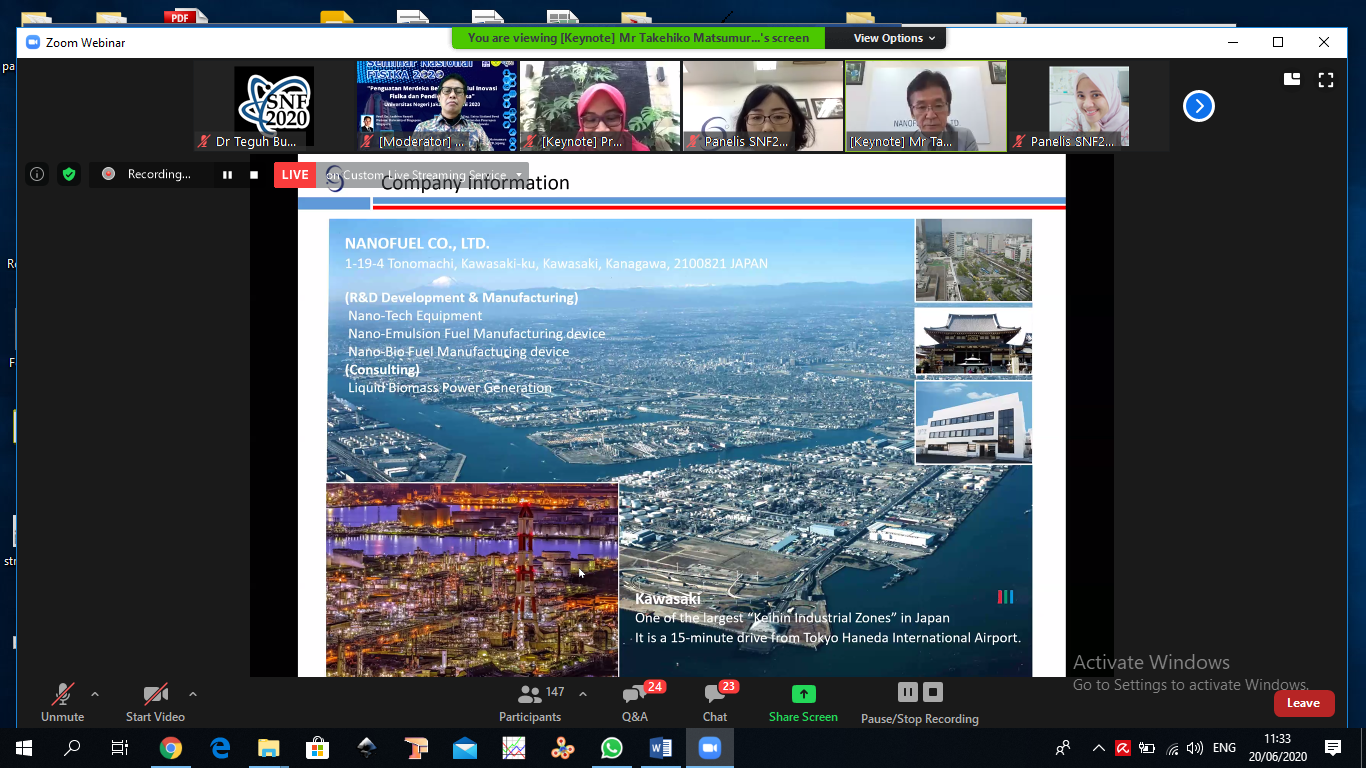
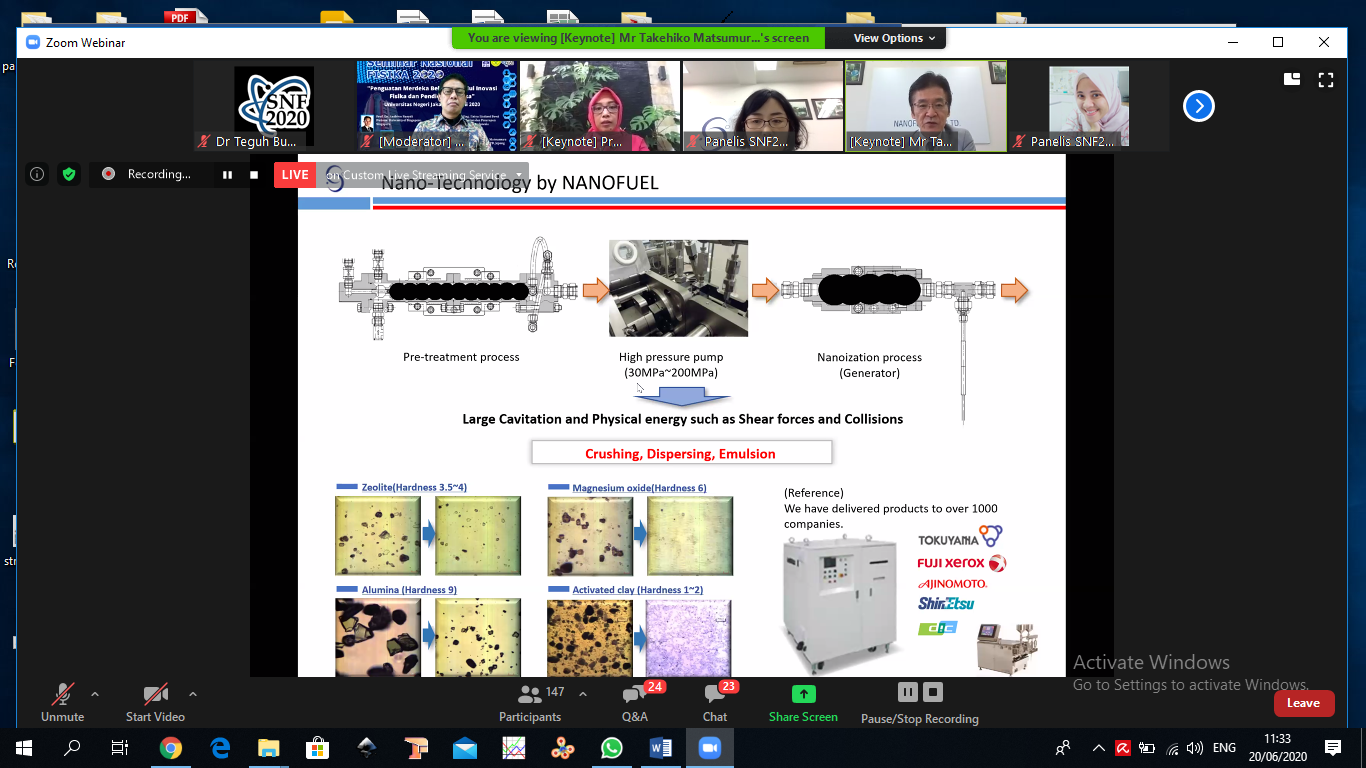
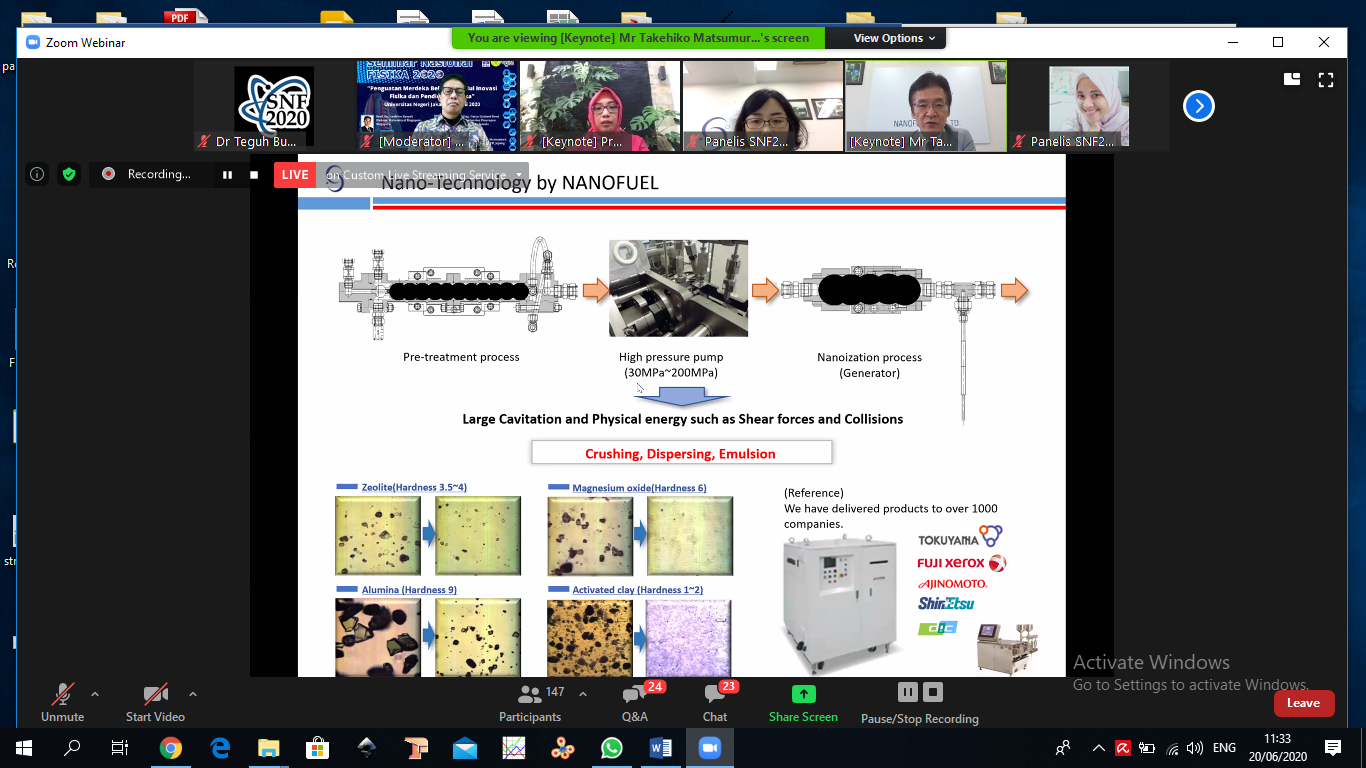
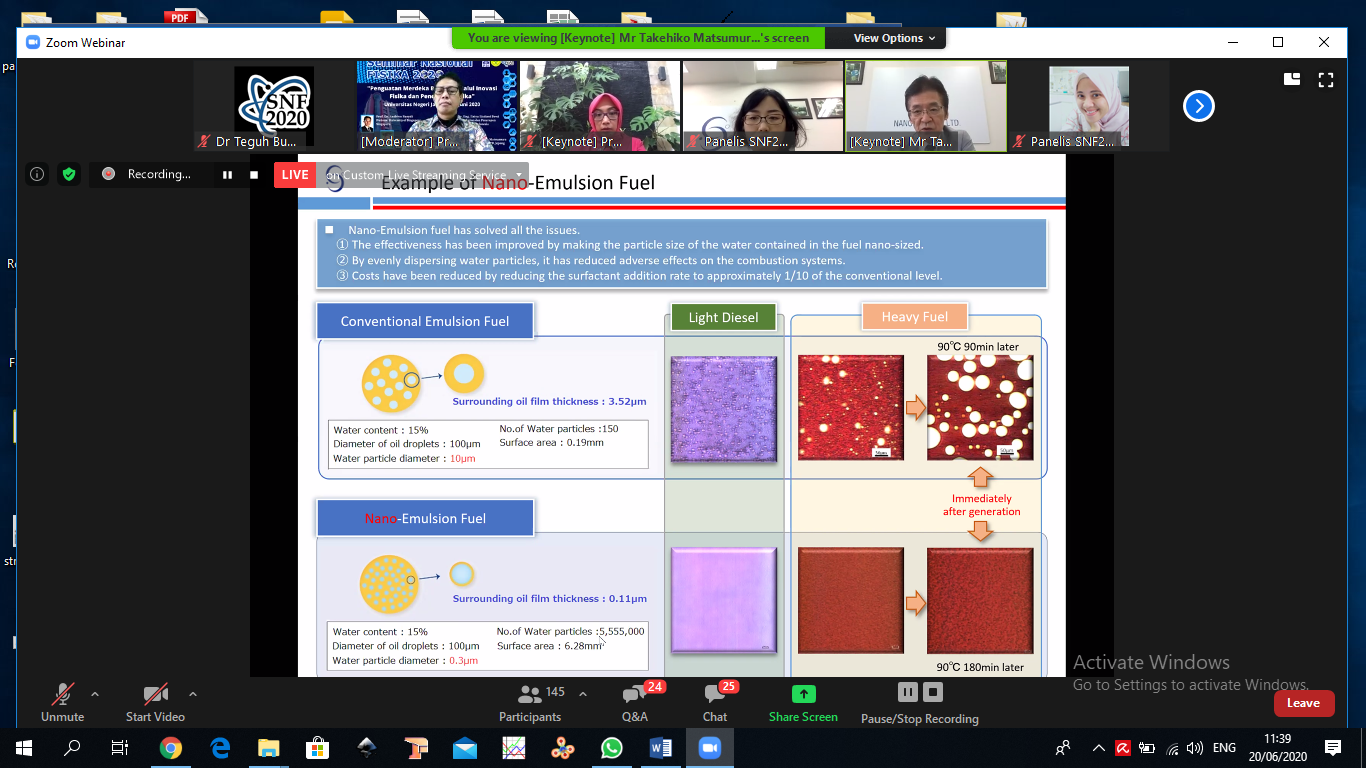
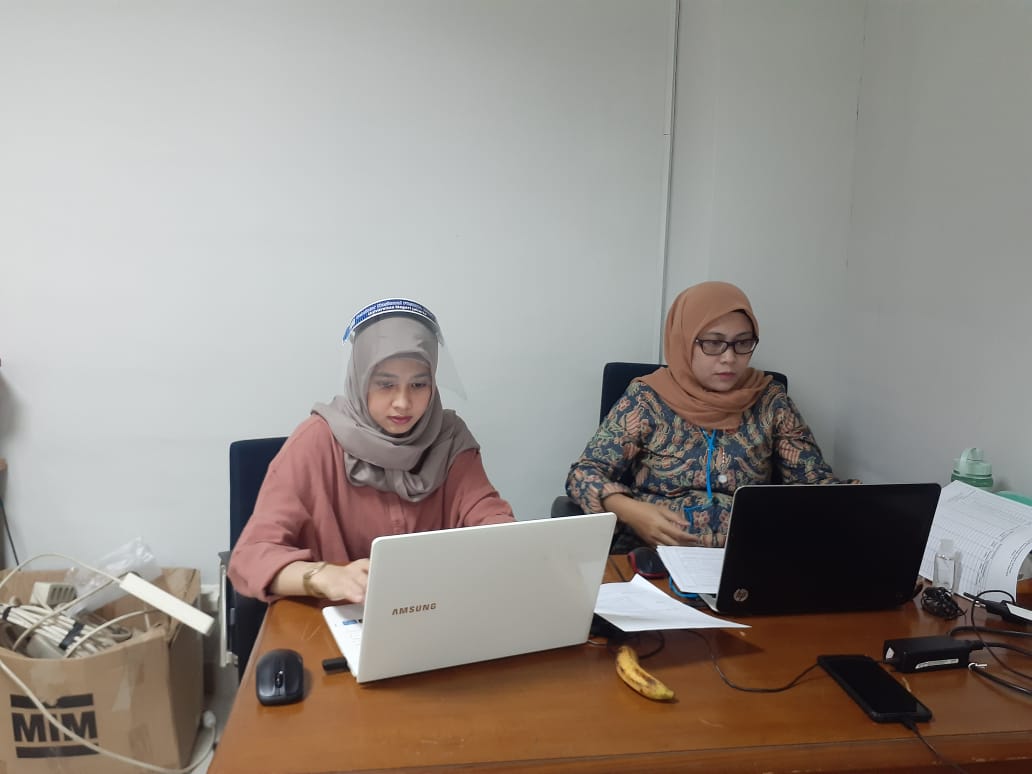
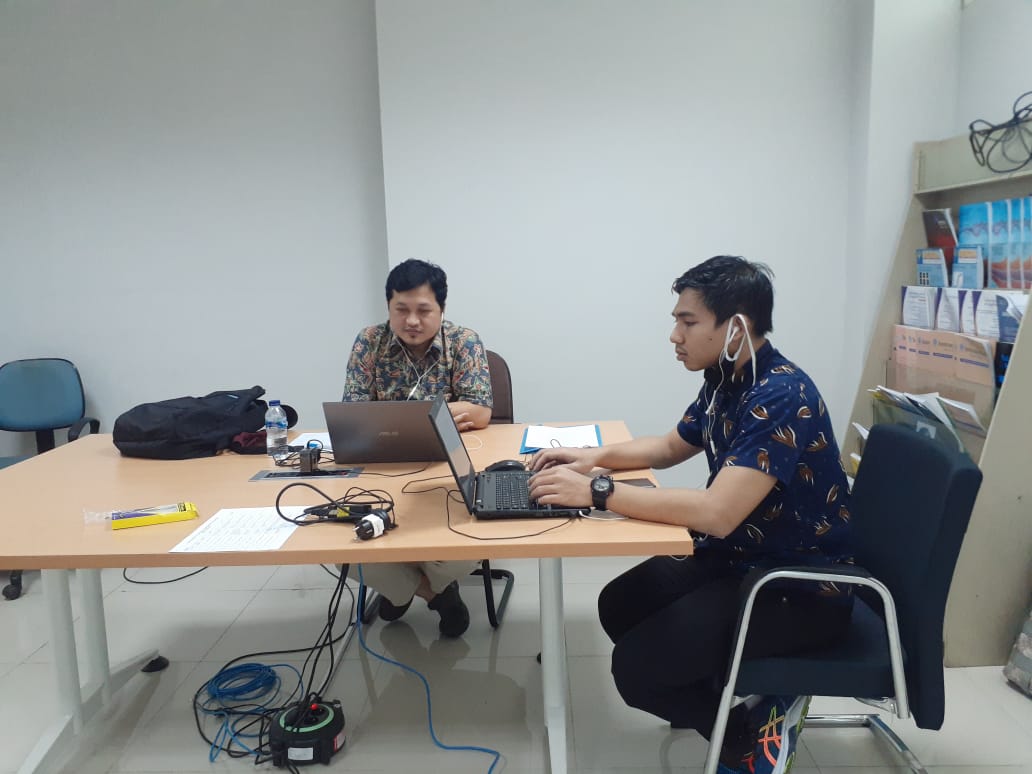
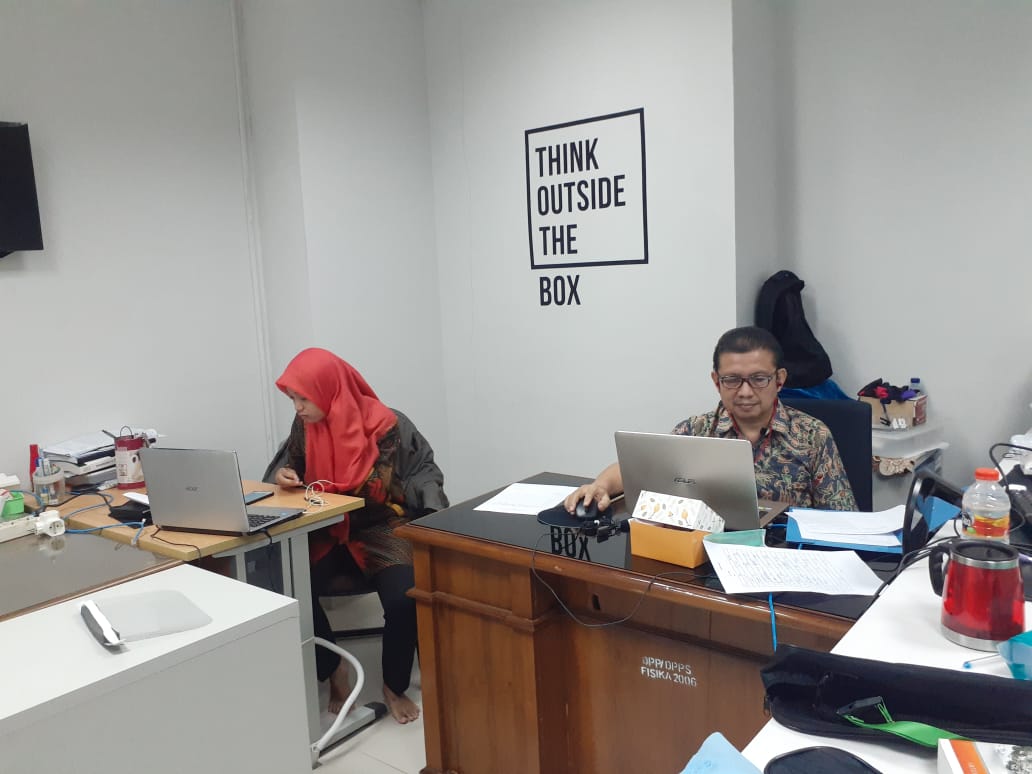
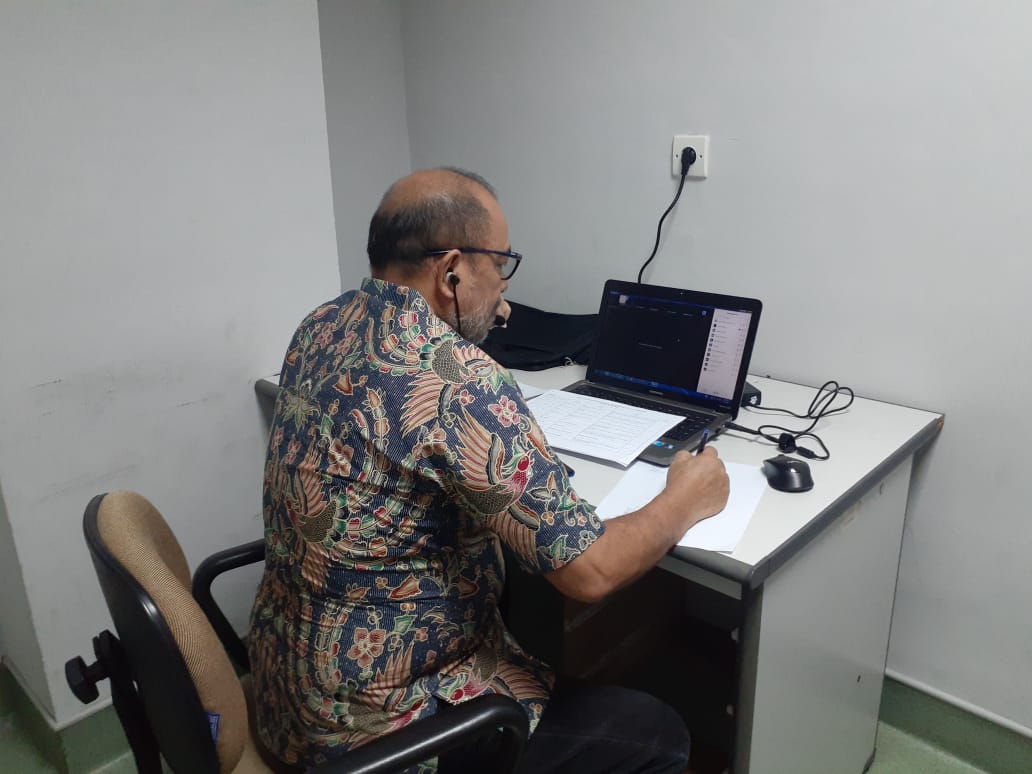
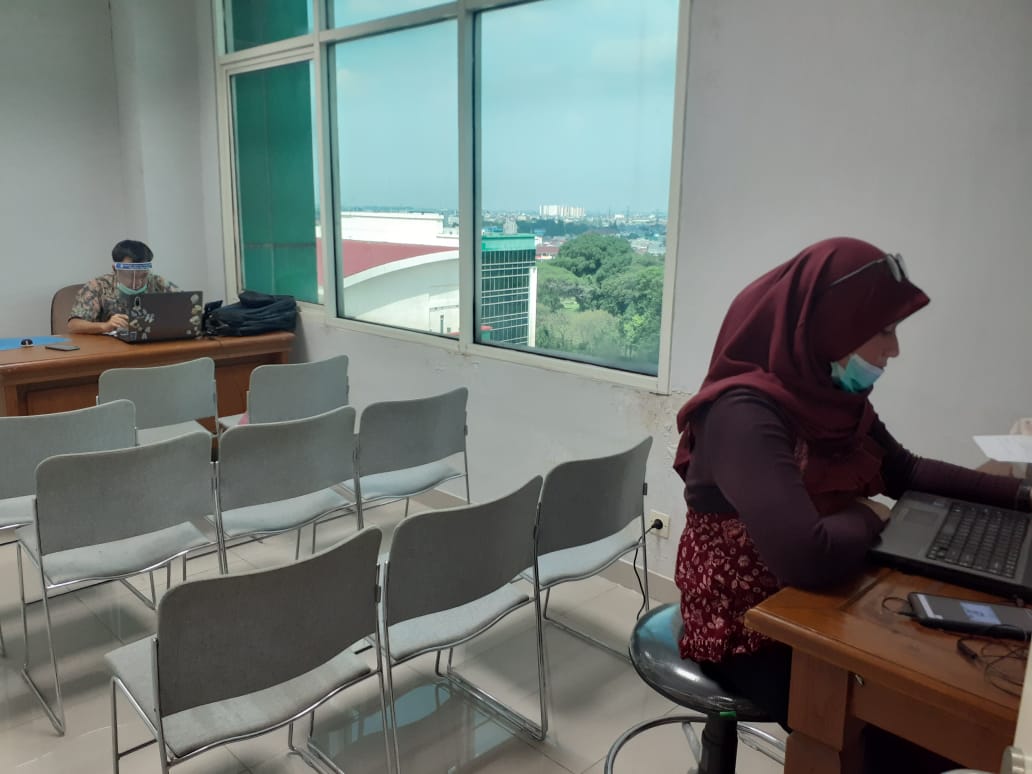
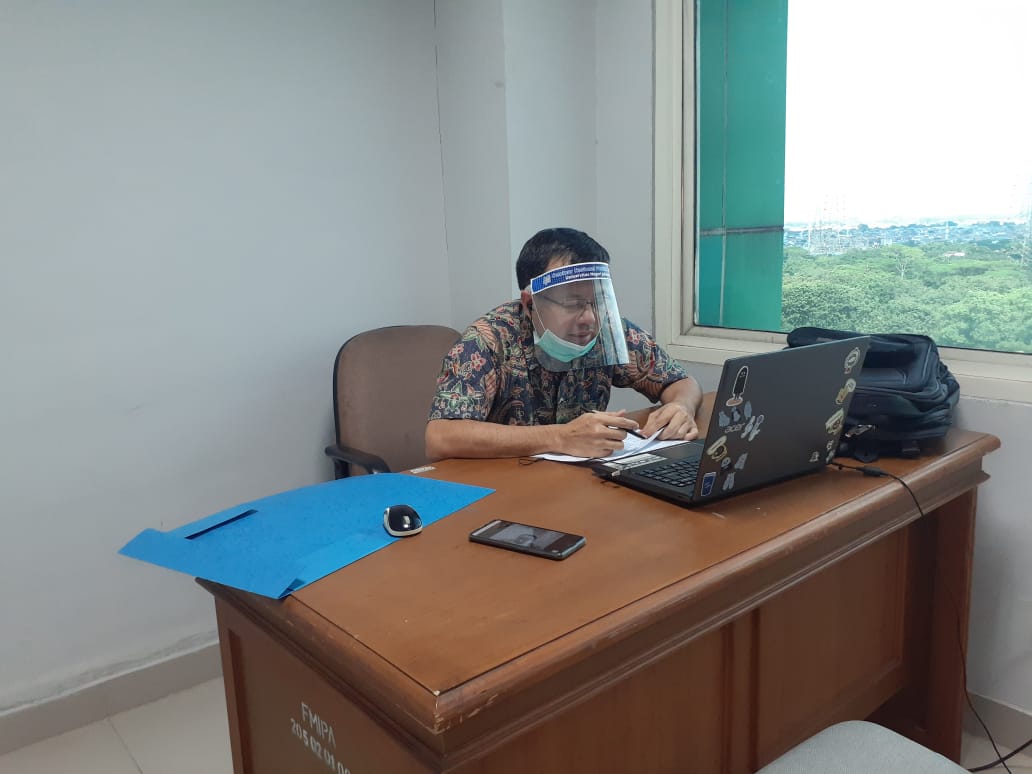
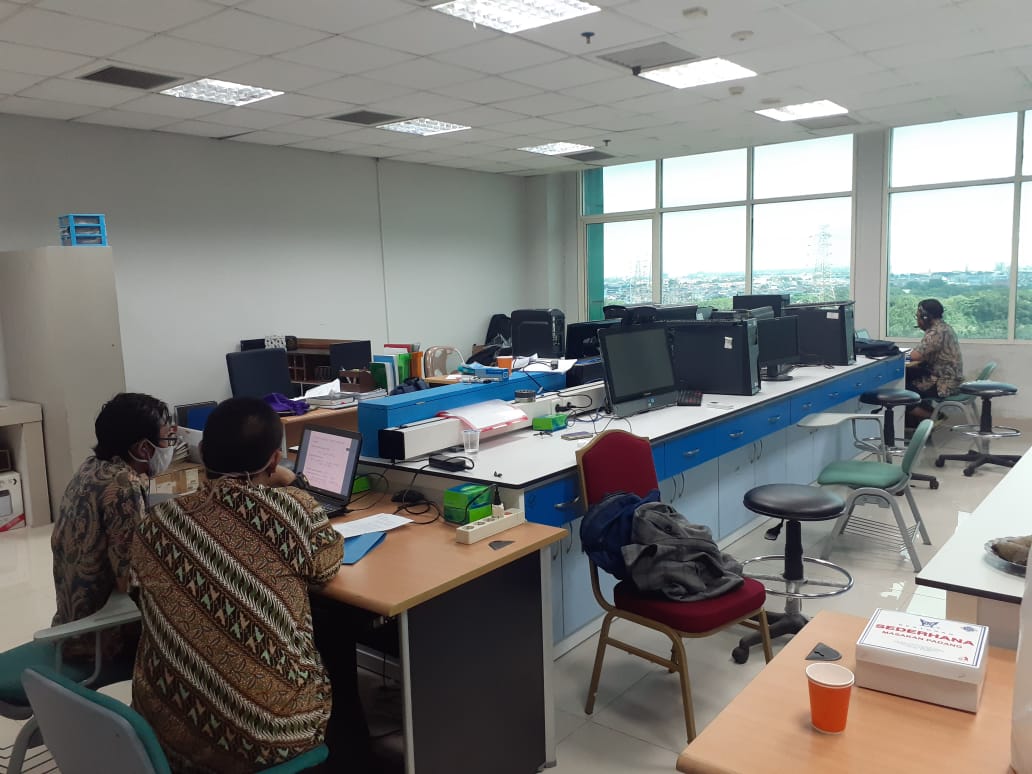
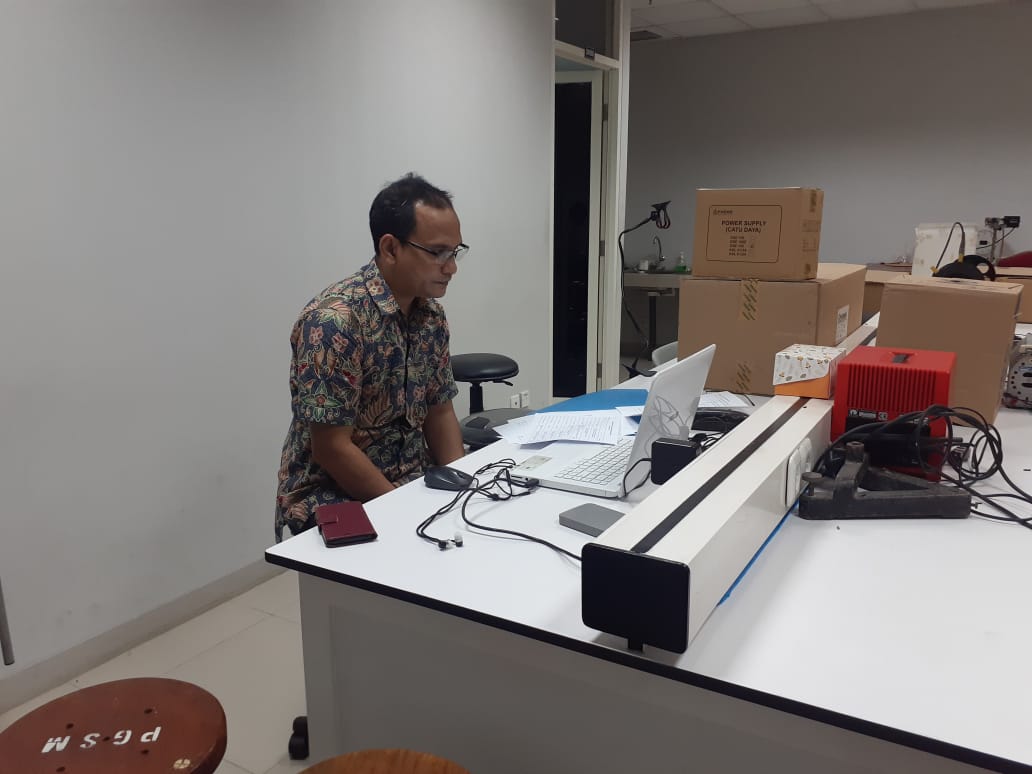
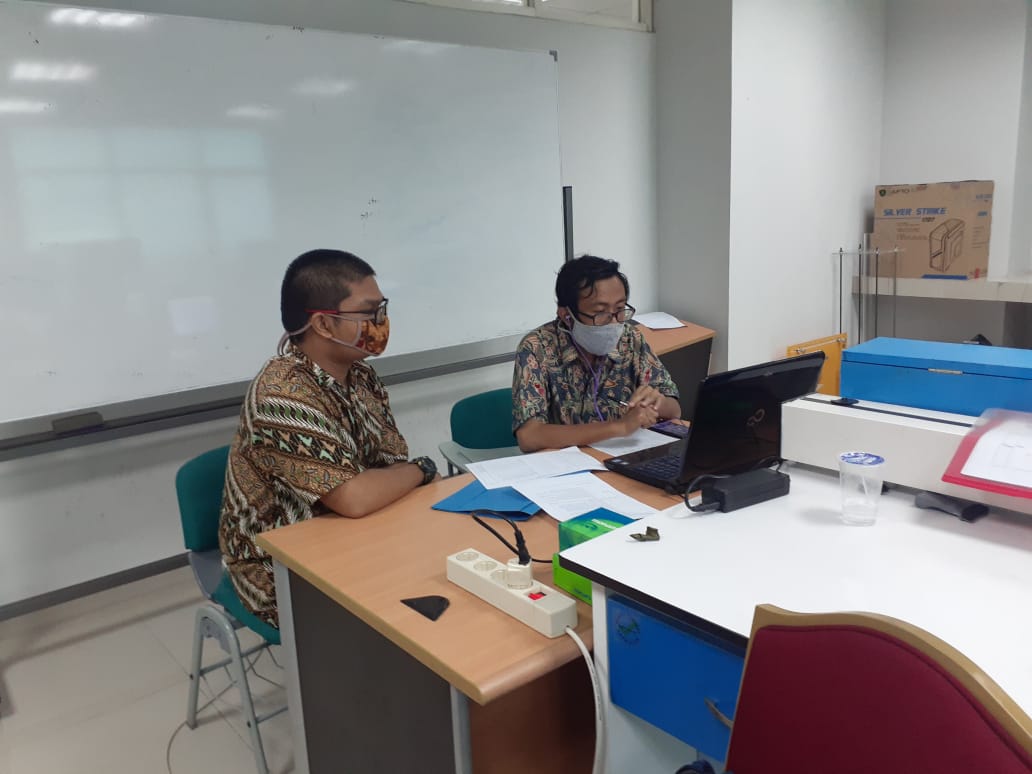
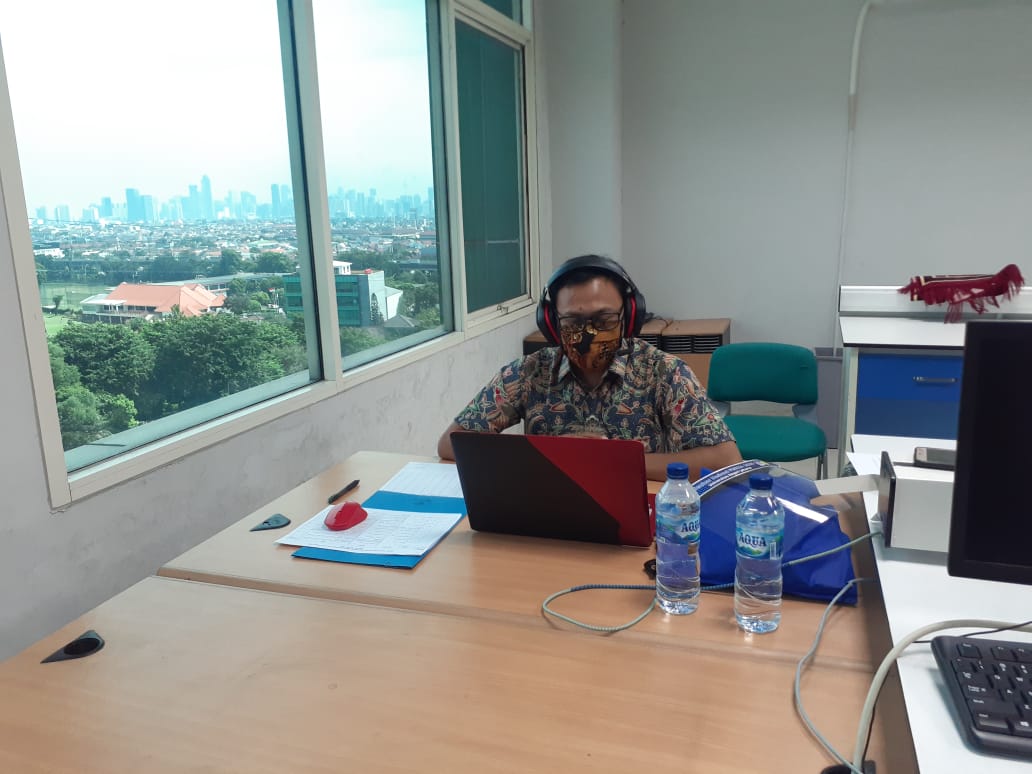
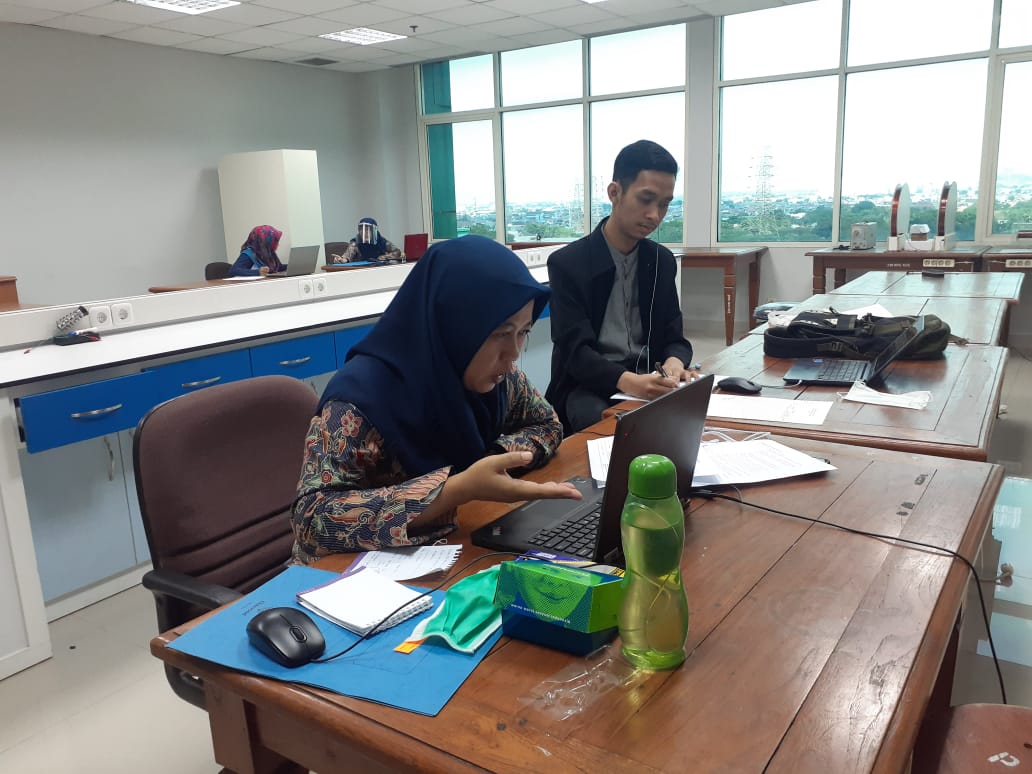
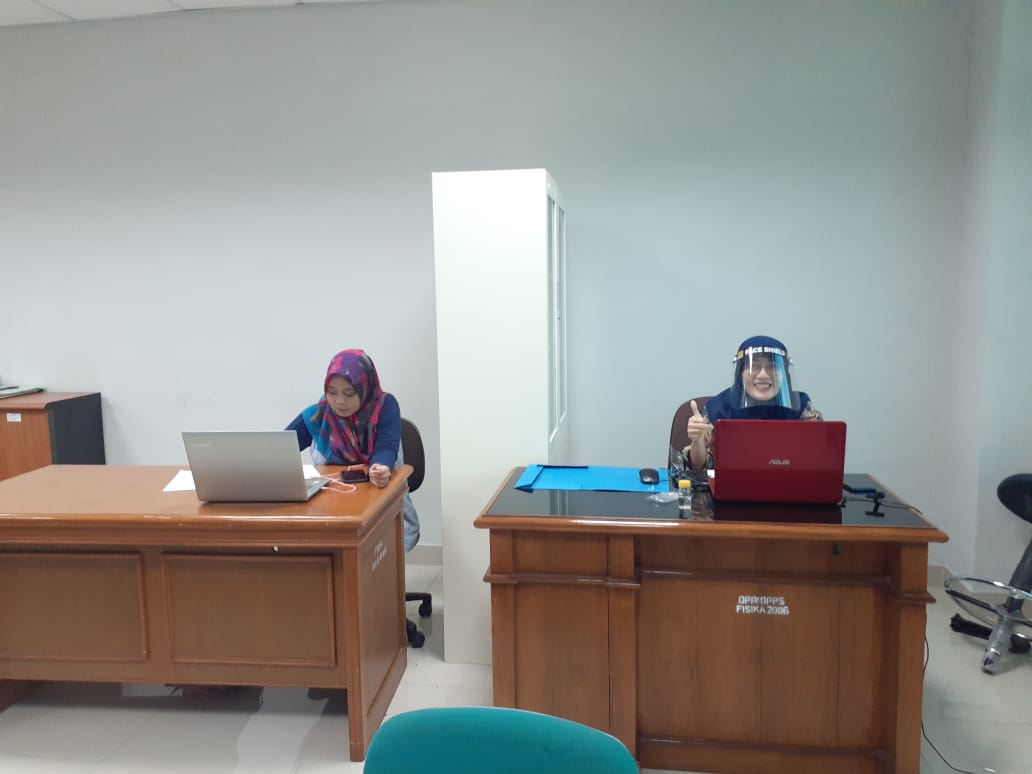
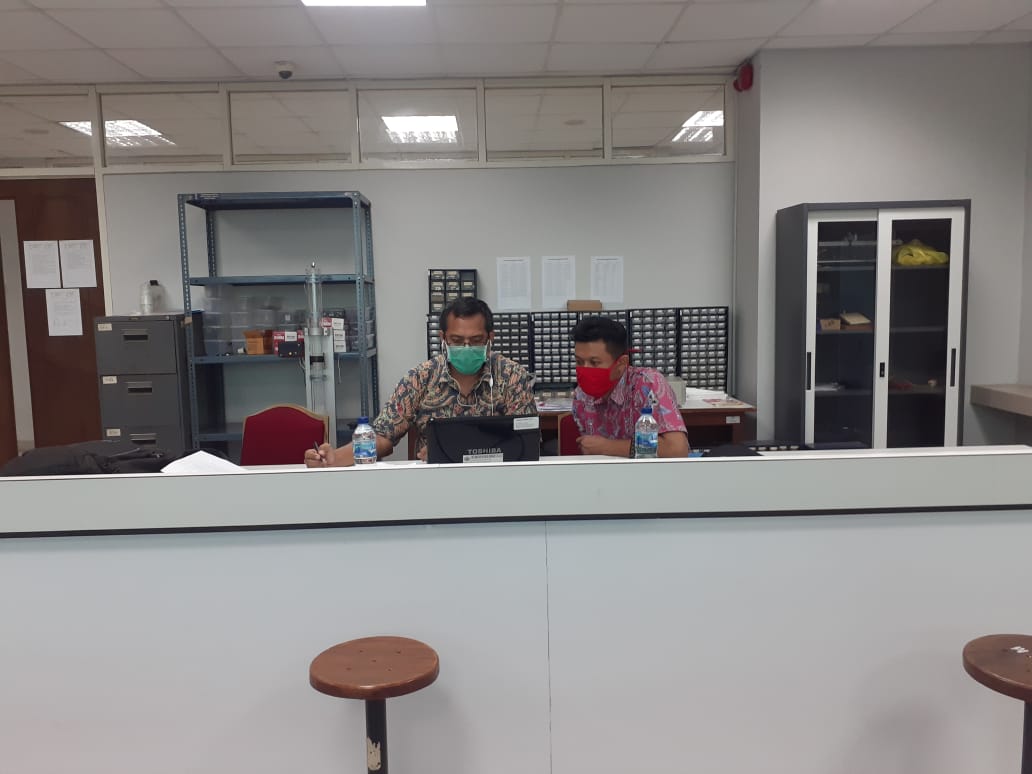
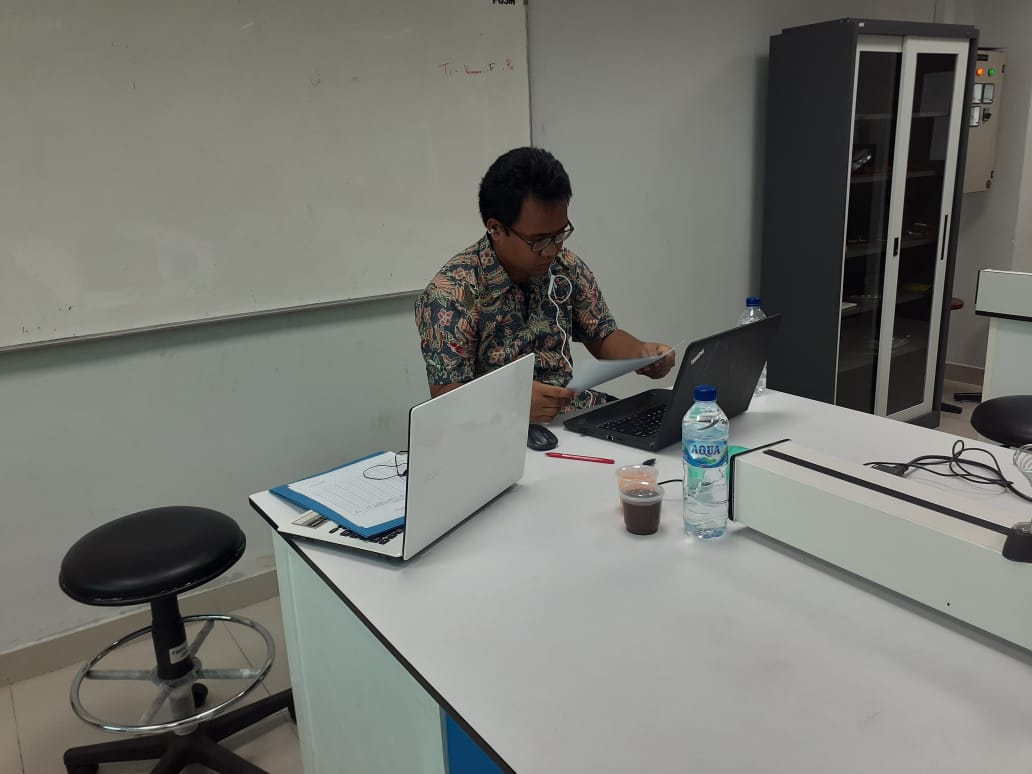
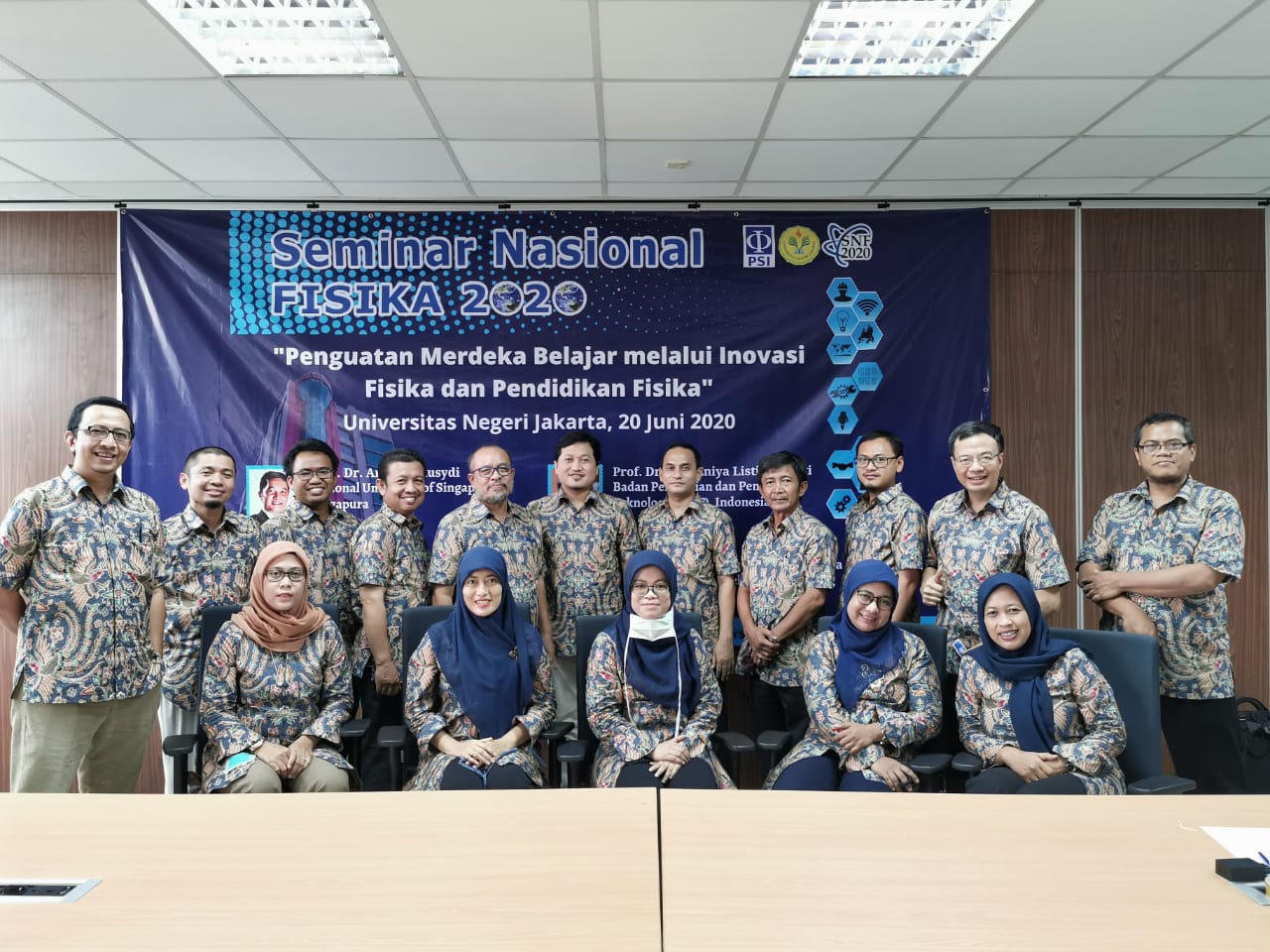
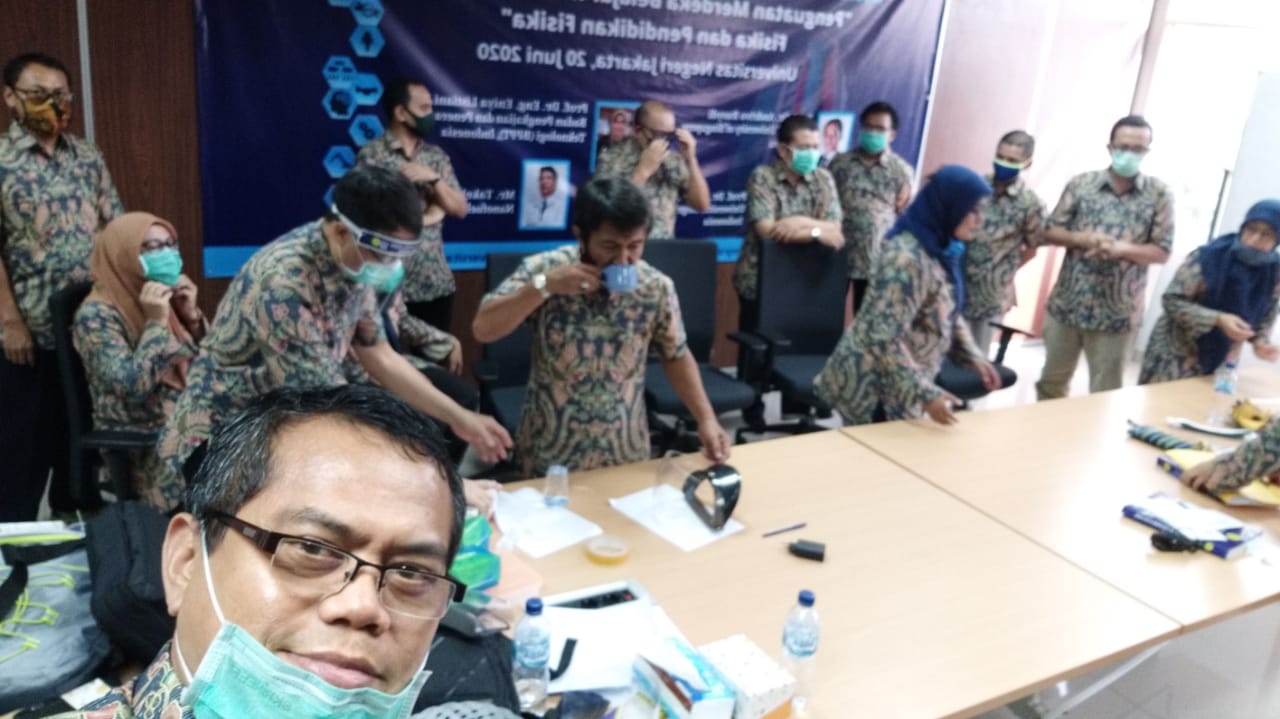
and virtual material delivered by the keynote speaker at the 2020 National Physics Seminar on the YouTube channel https://www.youtube.com/watch?v=Ub16BohHBgI.
